English that goes straight to the heart

Small Essays
An essay is a piece of writing that revolves around a particular theme and contains the academic opinions of the person writing it. To write an essay you need an Introduction, a Body (Supporting Paragraphs), and a Conclusion.
In this post, you will find the 20 brilliant small essays.
Daily Test - Attempt Now

Small Essay #1
Short essay on my family (250+ words).
Family is the place where you learn your first lesson in life. Your family members are the only assets that will remain with you forever. Whatever the circumstances, family members are always there for each other to support us. Good values and good morals are always taught in a family.
In the family, we are prepared to respect our elders and love younger ones. We learn lessons consistently from our family, about honesty, dependability, kindness and so on. Although I am a student in my final year, my family always treats me like a child but always provides us with a sensation of so much love and care. My family is the best family for me. I live in a nuclear family of four members.
My father is a teacher. He is the man who heads and leads our family. My mother is a housewife as well as a beautician. She is a lovely woman. My mother is everything to me. She is the one who understands me best and most closely. My grandmother is the cutest person of all.
I love my family because they are the jewels of my life. They work hard so that we can get anything we desire makes me love and respect my parents considerably more. We play games every night and discuss various topics to spend quality time together. I give deep respect and pay the highest regard to my family not just because they are my family, but for their unmatched and incredible sacrifices for me.
Also, Read Summarizing an Essay
Small Essay #2
Short essay on christmas (250 words).
Christmas is one of the most famous and light-hearted festivals which is celebrated across the world by billions of people. People of the Christian religion celebrate Christmas to remember the great works of Jesus Christ. 25th December is celebrated as Christmas Day across the world. Christians celebrate Christmas Day as the birth anniversary of Jesus Christ. Jesus Christ of Bethlehem was a spiritual leader and prophet whose teachings structure the premise of their religion.
Christmas Day is celebrated every year with great joy, happiness and enthusiasm. Everyone whether they are poor or rich gets together and partakes in this celebration with lots of activities. On this day people decorate their houses with candles, lights, balloons etc. People decorate Christmas trees on this day in their homes or a public square. They decorate Christmas trees with small electric lights of various colours, gift items, balloons, flowers, and other materials. After that, the Christmas tree looks very appealing and wonderful.
People follow popular customs including exchanging gifts, decorating Christmas trees, attending church, sharing meals with family and friends and, obviously, trusting that Santa Claus will arrive. Children eagerly wait for Christmas day very anxiously as they get lots of beautiful gifts and chocolates. In most cases, the fat person in the family dressed up as Santa Clause with a bell in his hand which attract kids and they get lots of beautiful gifts and chocolates from Santa Clause. 25th December, Christmas Day, has been a federal holiday in the United States since 1870.
Small Essay #3
Short essay on health is wealth (250+ words).
The greatest wealth is our own health. A healthy body can earn great wealth but, a wealthy person cannot earn great health. We live in a fast-moving world where individuals have no time for themselves. Most part of their life withers away in search of materialistic wealth in order to outshine others but, along the way, they lose their health.
Recent studies have shown that the increased stress of the present speedy life is leading to various medical conditions. Major among those are heart and neurological problems. Good health assists an individual to keep a positive attitude toward work and life in general. Wealth matters, but, is not as important as health.
Spending lots of money on junk food in five-star hotels or on other entertainment sources like watching films for a day and so on has no advantages other than self-satisfaction. Being physically and mentally healthy helps an individual to be socially and financially healthy as well. A healthy person can earn lots of money however an unhealthy person cannot because of a lack of motivation, interest, and concentration level.
Money is the source to carry on with a healthy life however good health is the source of living a happy and peaceful life. So, everyone should take many precautions in maintaining good health. Everyone should be away from bad habits and unhealthy lifestyles. Being healthy isn’t only the condition of being free of disease, ailment, or injury but also being happy physically, mentally, socially, intellectually, and financially. Good health is an actual necessity of happy life and the greatest gift from nature.
Small Essay #4
Short essay on balanced diet (250+ words).
A diet that contains all kinds of necessary ingredients in almost the required quantity is called the “Balanced Diet”. A Balanced diet is one that helps to maintain or improve overall health. We should consume a balanced diet consisting of essential nutrition: liquids, adequate proteins, essential fatty acids, vitamins, minerals, and calories. We must eat fresh fruits, salad, green leafy vegetables, milk, egg, yoghurt, etc. on time in order to maintain a healthy body.
Among the minerals, we require chiefly iron, calcium, sodium, potassium, and small quantities of iodine, copper, etc. They are found in green vegetables and most fruits, Vitamins have a number of kinds like A, B, C, D, etc. Vitamin A is found in fish oil, butter, carrot, papaya, etc., and Vitamin B is found in green leafy vegetables, wheat grain, etc. Vitamin C is found in green chilli, green vegetables, amla, lemon, and citric fruits. Vitamin D is found in the first oil, butter, and rays of the sun. We also need Vitamins E and K for our health. Milk is perhaps the only single item that can be called a balanced diet in itself.
Animal protein is found in meats, poultry, and fish. The white of an egg also contains protein. Another kind of protein is found in milk (casein), cheese, curd, pulses, soybean, dry fruits, etc. Fat is found in butter, pork, coconut, all edible oils, cod liver oil, the yolk of an egg, etc. We should drink more water at least 7-8 glasses of water. A healthy body also needs some daily physical activities, proper rest and sleep neatness, a healthy environment, fresh air, and water, personal hygiene, etc.
Also, Read Examples of Informative Essay
Small Essay #5
Short essay on science and technology (250+ words).
In a fast-changing world, the fate of the country can be moulded through our ability to harness modern science and technology, which is a road to boost the development programs of the country. Rapid technological advances have reduced the dependency on natural resources or the factors in proportion to it.
Man is performing precisely by machines with a regular improvement in his work because of quick technological changes by virtue of scientific advancement all around the world. We have accomplished desired scientific and technological advancement and have succeeded in boosting various important international activities like information and telecommunication, television, meteorological services, medical advancement, industrial development, nuclear research, Space Research Oceanographic Research, etc.
Over the years a strong science and technology infrastructure base has been established for giving modern shape to world industries. It covers a chain of laboratories, specialized centres, various academic and research institutes, training centres, and useful development programs, which continuously provide skill, technically trained manpower, and technological support to industries for better execution. Science has advanced a great deal in the field of medical care. New technology has given a compelling medical care framework at a reasonable cost. Medical research has been carried out, broadly on nutrition, tuberculosis, reproduction, child care, leprosy, drugs, communicable diseases, cholera, and malaria, which has an extremely certain result.
If we look at the global scenario, the modern world is moving exceptionally fast. There are rapid scientific and technological changes that are occurring in a steady progression. Our country, as a global competitor, in the race of becoming a world power, needs to accomplish more in the area of Science and Technology emphasizing it as its foremost national priority in order to accomplish its objective.
Small Essay #6
Short essay on co-education (250+ words).
Co-education is a system of education in which boys and girls study together in a common school or college. Co-education was not prevalent in ancient times. It is a groundbreaking thought. Co-education is exceptionally practical. The number of schools required is less. The strength of the teaching staff is diminished. The government spends less money on infrastructure and laboratories. The balance of money so saved is spent on better maintenance of schools and colleges, which facilitates the students for better study.
The parents supported the case for adequate education for the children irrespective of their sex. The countrymen realized that the boys and girls have to move together and shoulder to shoulder in every walk of life in the free world. They started educating their children in co-educational institutions. That is the reason why the students of co-educational institutions do better in every walk of their life.
It is useful in producing a sensation of solidarity and a feeling of equivalent obligation among boys and girls. When young boys and girls come closer to each other, they take more care in understanding each other. That helps in creating a friendly atmosphere between the two. The boys and the girls partake in their joint exercises consistently in schools and universities.
If we want that our country ought to sparkle, we need to bring young boys and young girls together for making a power of working hands in the country, which can give a compelling reaction for greatness by accelerating the advancement in every one of the fields.
Small Essay #7
Short essay on education (250 words).
There are two basic purposes behind education. The first is to free people from ignorance, superstition, bad habits, and many wrong ideas. Secondly, to provide the citizens of a country with some skill or special kind of knowledge that would enable them to earn a decent living. In a highly populated country like India education is a must for both the purposes mentioned. First, there must be a hundred per cent literacy if the so-called democracy that the constitution guarantees for its citizens is to have any true meaning.
Only educated citizens can utilize democratic rights usefully. But as the population of this country rises by leaps and bounds, mere knowledge for its own sake will not suffice. People, educated people, must learn to produce things that are in daily demand. We need more technicians, more carpenters, more well-informed farmers and cultivators, and more skilled workers of different categories who can increase the goods and services they demand which are constantly rising.
There should be close coordination between producers of necessary goods and educational planners. Turning out graduates from colleges and universities would not help things because such ordinary graduates are not employable in industries. Colleges, universities, and other seats of higher education must train young men and women who are able to show tangible results in the form of useful goods needed by society. Such education alone can exorcise the spectre of unemployment that is stalking the country today and is at the root of all its serious troubles.
Also, Read Top 10 Essay Examples
Small Essay #8
Short essay on save environment (250 words).
Environment means a healthy natural balance in the air, water, animals, plants, and other natural resources. The environment influences the existence and development of an organism. Pollution is the process of creating the environment dirty by adding harmful substances thereto. Owing to indiscriminate industrialization man has created a polluted environment. He has continuously tampered with nature which led to a threat to the sustenance of mankind.
The constant more in the world population is the main reason for environmental pollution. More population means more industry. Factories release toxic gases into the air, and filthy poisonous waters from factories and mills For also released into the waters of rivers; trees are cut down for fuel and other commercial purposes, or for procuring land for building houses. This results in a fall in the supply of oxygen that the trees provide With the felling of trees animals and birds also lose their shelter and this destroys the balance in the ecology .
To prevent these hazards from endangering human, animal, and plant life measures should be taken before the situation goes out of control. More trees should be planted. Anti-pollution scientific methods should be devised, so that toxic gases and poisonous effluents are not released by factories and mills into the air and water respectively. Cutting down trees should be made punishable by law. Poaching and hunting of animals for monetary gain and recreation should also be stopped. Finally, from early life, people should be so educated that they become aware of the vital importance of a healthy, natural, and toxic-free environment.
Small Essay #9
Short essay on cleanliness (230+ words).
There is truth in the common saying: “Cleanliness is next to godliness.” Cleanliness is a great virtue. It makes a man healthy and happy. The healthy habit of cleanliness should be formed from childhood in our everyday routine. A clean environment keeps us free from pollution. Cleanliness comes out of a taste for decency.
Cleanliness is of two types—cleanliness of body and cleanliness of mind. Cleanliness of the body makes for physical health. Health is an impossibility without bodily cleanliness. The disease is the handmaid of dirt. The germs of disease breed and multiply in the dirt. Epidemic diseases like cholera and typhoid which often sweep over villages and towns and take a heavy toll on life are the result of dirty habits and the surroundings of the people.
Cleanliness of the mind is as necessary as that of the body for self-respect. No one loves and respects a man if he is not clean in mind-free from impure desires, and evil thoughts. Mental cleanliness makes for one’s success in any sphere of life. The effects of cleanliness are great. It contributes to the character of a noble personality not only with clean clothes but also with clean ideas, clean thoughts, and clean ways of life. In every walk of life, it is necessary to maintain cleanliness in body and mind as well as indoors and outdoors. Cleanliness is truly next to godliness. All should cultivate it.
Small Essay #10
Short essay on water pollution (250+ words).
According to the World Health Organization, any foreign matter either natural or other sources which contaminate and pollutes the water or the water supply making it harmful to human and aquatic life is termed water pollution. Household detergents and wastes pollute water bodies. When detergents and fertilizers containing phosphates are discharged into water, it promotes the growth of algae. Drilling oil under the sea may prove dangerous for marine life.
Water pollution may severely affect human, plant, and animal life. When contaminated water is consumed, the pathogens enter the human body. It may cause various water-borne diseases such as typhoid, cholera, diarrhoea, dysentery, and jaundice. Metals such as lead, mercury, and cadmium dissolved in water may cause several diseases if they enter the human body. When water contaminated with cadmium was consumed by the Japanese, they were affected by a disease called Itai-Itai.
Similarly, a disease known as Minamata affected the Japanese after they consumed fish that had a large concentration of mercury. When phosphorus and nitrates from fertilizers are disposed of in water bodies, they promote the growth of algae. The presence of algae in water bodies in a large number reduces the amount of dissolved oxygen in water resulting in the death of fish and other water organisms. Thermal pollution increases the temperature of the water which in turn reduces the level of oxygen in the water. This results in the death of many species of fish. Measures should be taken to prevent water pollution before the situation goes out of control. Anti-pollution scientific methods should be devised.
Small Essay #11
Short essay on child labour (250+ words).
Child labour has been quite a problem down the ages. Child labour means the labour done by children below the age of eighteen. Employing little boys and girls not only saves money but also helps the employer avoid labour unrest. Young boys and girls can be paid lesser wages and they do not form unions to realize demands for higher pay.
The types of work children have to do are many and various. In tea stalls and small hotels, they clean the utensils, mop the floors and serve at the table. In garages, they wash the cars, buses, and lorries. The female children serve as maid-servants in various families. Though child labour is a cruel practice it saves many families from starvation. The income of the adult members of these families is not sufficient even for their hand-to-mouth living. If the children do not work to supplement their income, the families will have to starve. So simply banning the use of child labour one could not solve the problem.
In recent times the government of India has become aware of the evils of the system. But it can be hard to do away with it all of a sudden. Abolition of the employment of child labour must be preceded by a process of improving the economic condition of the families concerned. Proper methods should be adopted so that the children are educated and not sent to workplaces that destroy both the body and the soul of these unfortunate creatures.
Also, Read Academic Essay Examples
Small Essay #12
Short essay on my hobby (250 words).
A hobby is voluntary work done in leisure with pleasure. There are many fashionable hobbies such as stamp-collecting, coin-collecting, photography, etc. But my favourite hobby is gardening. I started it when I was only ten. I have a small plot of land beside our house. There I cultivate gardening. I spend one hour every day gardening. Back from the morning walk, I go to my garden with a spade and a waterful bucket. I dig up the soil, trim the plants, and water them. I also spray insecticides and apply fertilizers.
When I see the plants swaying in the wind, my heart leaps in joy. I experience heavenly pleasure as I see them grow day by day. I have chosen this hobby because it gives me not only joy but also enough physical exercise to keep my body fit.
I face some problems in cultivating gardening. Entellus often eat up flowers and destroy the plants, though I am at pains to scare them away. Gardening brings me both joy and health. Every afternoon I work for an hour in my garden and watch the buds come up and the branches nod in the breeze. Although a hobby is a source of pleasure and not of profit, my hobby combines the two. My mother looks upon it very kindly, as a part of my garden serves as a kitchen garden. A hobby is an index to a man’s character and I believe my hobby reflects my character.
Small Essay #13
Short essay on my ambition in life (200 words).
Ambition is a goal or objective to achieve in life. In order to succeed in life, one must have a goal. An aimless man is like a ship without a compass. So, I have to select an ambition in my life. Very soon I shall be a citizen of my country. I shall have some duties to society and my country. I must perform them. I think no country can prosper without education. So, my ambition in life is to spread education. Any noble work needs money.
So, after completing my graduation I shall join my father’s business. Business is the best source of earning money. I shall spend a large part of my profit on spreading education and treatment for the poor and sick villagers. I shall set it up. schools for children. I shall start night schools for the adults to make them literate. I shall set up a library. Books on various subjects will be issued without any subscription. I shall open training centres for young boys and girls to provide them with jobs. I do not know how far my ambition will be successful. But I shall try my best.
Small Essay #14
Short essay on value of time (250 words).
There is a saying, “Time and tide wait for none. The value of time is very great. We can regain lost money and lost health. But lost time is gone forever. So, we should know the use of time. We should remember that we cannot recall the time that is gone. We can stop the clock but we cannot stop the time. And so we must make the best use of every moment. This knowledge and habit of proper use of time are the secrets of success.
Our life is short. But time passes swiftly. Our life is made of moments. So, to lose a moment is to waste a valuable part of life. By making the right use of the time we can do a lot. We should avail ourselves of every opportunity. If we do not know the use of time our life becomes miserable. We should know that a stitch in time saves nine. Idle time is said to be a thief of time.
If we idle away our time, our appointed work will suffer and success will be hard to achieve. Time lost is lost forever. We are born to do a lot of work. Great men realize it. They never lose a moment. Gandhiji always used to keep a watch to watch his time. He who performs his duties punctually prospers in life positively. What can be done today should not be put off for tomorrow. We should not say ‘later’, we should do ‘now’.
Small Essay #15
Short essay on the value of trees (250+ words).
Trees are of great importance in our everyday life. They provide us with thatch for huts, timber for buildings and furniture, firewood, food like fruits, honey, etc., and medicine. We are dependent on trees for our very existence on earth. They produce oxygen which keeps us alive. They also absorb carbon-di-oxide exhaled by us and thereby help to create a pollution-free atmosphere. Trees help to prevent the erosion of soil and floods.
Both the urban and rural people gain advantages from growing more trees. The former enjoys a pollution-free atmosphere and the latter gets fruits, fuel, goods of economic importance, and medicines. Road-side trees are planted to beautify the roads and purify the air. Trees supply fresh air to reduce pollution in urban areas and help in rural economic growth. It is important to note that 33% of the land is required as forests in any country to maintain ecological balance. Hence we must take utmost care to grow more trees and stop deforestation. Trees give men shelter and shade. They protect wildlife. Trees help men fight against environmental pollution.
So we all must grow more trees and stop deforestation. We must care for trees for our own sake. We should not forget that the great scientist Acharya Jagadish Chandra Bose proved that trees are living beings. The festival, Vano-Mahotsav is observed every year during the rainy season. Thousands of saplings are planted on the occasion. More and more areas are brought under forest cover and people are taught “Plant trees and save a life.”
Small Essay #16
Short essay on morning walk (250 words).
Morning walk and early rising go hand in hand. One who wants to go for a morning walk has to get up early. A morning walk is a healthy habit. It removes the physical lethargy caused by the night’s sleep, helps in the circulation of blood, and makes one healthy. It is good exercise after a long night’s rest and provides us with fresh oxygen from the cool morning air. It gives a good start to a man’s whole day’s work. He can finish a large amount of his work before others get out of bed. He need not hurry over any part of his work.
A morning walk enables a man to have closer contact with nature. He can see the calm, quiet and complete beauty of nature- the beauty he cannot see by day. A morning walk provides independent exercise. He need not go to the gymnasium for exercise. Morning walk, like early rising, makes a man healthy, wealthy, and wise.
Even doctors advise their patients to have a morning walk daily, as a remedy for various types of physical ailments, especially diabetes. Moreover, a morning walk is certainly a good start for the whole day’s work. During our walk in the morning, we come into greater and closer contact with nature. A morning walk is advantageous as an independent exercise. If anyone wants to ensure proper care of his or her health, he or she can undertake a morning walk as it is very simple as well as beneficial.
Small Essay #17
Short essay on science (250 words).
Science is a great boon to human civilization. All signs of Progress in civilization have been made possible by science. Science has made our life easy and comfortable. It has given us electric fans, and lights. fans cool us, lights remove darkness. Lift, washing machine, etc. save our labour. Car, train, bus, and aircraft have made our travel speedy and comfortable. The computer has taken the excess load off our brains. Science has given us life-saving medicine. Surgery can do something miraculous. Space flight is another wonder of science.
Thus through the gifts of science, the man who had once lived in the cave has now landed on the science of the moon is a blessing to us. But it is a curse at the same time. Science has given us speed but has taken away our emotions. It has made our machine. The introduction of the mobile phone has destroyed the art of letter writing. Science has made war more dreadful by inventing sophisticated weapons. Peace has become scarce. Yet there are some abuses of science. It has given us the frightful nuclear weapons that can destroy the whole world.
But who is responsible for making Science a curse? Certainly, it is the evil intention of a few scientists and malignant politicians. We can use fire for cooking our food or burning other’s houses. It is not the fault of fire, but of its users. Likewise, man is responsible for the uses and abuses of science. But science cannot be blamed for this.
Small Essay #18
Short essay on noise pollution (250+ words).
Any unwanted loud sound which causes stress and irritation can be termed noise pollution. Of late, sound or noise pollution has adversely affected our normal life in a major way. It is chasing us at almost every step. In schools, colleges, offices, and even hospitals we have an explosion of deafening sound. The main sources of noise pollution are Means of transport, the Use of loudspeakers, the Industrial sector, and the Celebration of festivals and wedding ceremonies. We are almost deafened by the blaring mikes or the record players which are often played at full volume.
Secondly, we have noise pollution caused by various groups of people shouting out their slogans or impatient automobiles always honking their horns. During some social and religious festivals, crackers are burst indiscriminately. Noise pollution can have serious effects on human health. It may cause impairment of hearing and can cause sleep disruption. People who are frequently subjected to a high level of noise pollution may suffer from hypertension, depression, and panic attacks. It may lead to an abnormal increase in heartbeat and heart palpitation. It can also cause migraine headaches, nausea, and dizziness.
Some Measures to Minimise Noise Pollution are Prohibiting the blowing of horns, The use of loudspeakers should be banned, Airports should be located away from residential areas, and People should restrain themselves from lighting firecrackers. In recent times laws have been passed to take effective steps to control sound pollution. People must also be made aware of the dangers of noise pollution.
Small Essay #19
Short essay on television (250+ words).
Television is one of the many wonders of modern science and technology. It was invented in England by the Scottish scientist J.N. Baird in 1928 and the British Broadcasting Corporation was the first to broadcast television images in 1929. Previously the radio helped us hear things from far and near and spread information and knowledge from one corner of the globe to another. But all this was done through sound only. But television combined visual images with sound.
Today we can watch games, shows, and song and dance programs from all corners of the world while sitting in our own homes. TV can be used for educating the masses, for bringing to us the latest pieces of information audio-visually, and can provide us with all kinds of entertainment even in colour.
But as in all things, too much televiewing may prove harmful. TV provides visual images but the televiewer has a limited choice of programs. He has to adjust himself to the scheduled programs of a particular television channel. But as for the book, a reader’s imagination plays a vital role. He can freely read a book which is a personal activity and it cannot be shared with others at the same time. In many cases, the habit of watching TV has an adverse effect on the study habits of the young. When we read books, we have to use our intelligence and imagination. But in most cases, TV watching is a passive thing. It may dull our imagination and intelligence.
Small Essay #20
Short essay on newspaper (250+ words).
The Newspaper is the mirror of the world. Modern life cannot be imagined without newspapers. A newspaper is a regular source of important news from home and abroad. It represents the current and living history of the world. Newspapers are of various kinds dailies, weeklies, bi-weeklies, monthlies, etc. The main function of a daily paper is to publish news of general interest while the others mostly contain literary pieces and articles on important topics.
Nowadays every newspaper has some special sections dealing with politics, everyday problems, off-beat news, business, sports, editorial page, feature pages, etc. So, the newspaper is one of the most powerful organs for the dissemination of news and views among the public. It plays a very important role in educating people and guiding them along the right path. If it wants to it can fight social evil successfully. A newspaper can also do us much harm. Used wrongly it can create hatred and enmity between man and man, section and section, nation and nation.
Sometimes it publishes baseless reports or stories to create deliberately confusion in the minds of gullible people. A newspaper is as powerful as any potent weapon. It can be used for both good and evil. Much depends on the outlook and motive of the people who are at the helm of the paper. It shapes Public opinion. It can mislead people with false and fabricated news. The newspaper should give impartial and correct pieces of information. It must not feed false news.
You Asked, We Listened – Get Free Access to All Writing Lists 😍😍

200 Words Paragraph
Read More »

150 Words Paragraph

100 Words Paragraph
Daily reading comprehension test - attempt now, discover more from english luv.
Subscribe now to keep reading and get access to the full archive.
Type your email…
Continue reading

How to Write a Short Essay in English
Please share my lesson using your social media platforms. Use the links above.
Student FREE Bookstore (CLICK HERE)

CLICK HERE TO GO TO AMAZON.COM.BR
Writing clearly and concisely is one of the best skills you can take from school into professional settings. A great way to practice this kind of writing is with short essays. A short essay is any essay that has a word count of fewer than 1,000 words. While getting assigned a short essay might seem preferable to a ten-page paper, writing short poses its own special challenges. Here, we’ll show you how to write a convincing short essay in five simple steps.
What is a short essay?
A short essay is any type of essay condensed to its most important elements. There is no universal answer to what a short essay length is, but teachers generally assign short essays in the 250- to 750-word range, and occasionally up to 1,000 words.
Just because the essays are short doesn’t mean the subjects must be simple. One of the greatest challenges of short essays is distilling complex topics into a few telling words. Some examples of short essay topics are:
- The advantages and disadvantages of social media
- The pros and cons of online learning
- The influence of music on human emotions
- The role of artificial intelligence in modern life
- The ways that climate change affects daily life
Why write short essays?
Short essays have a number of advantages, including effective communication, critical thinking, and professional communication.
Effective communication: In the short essay, you don’t have the space to wander. Practicing short essays will help you learn how to articulate your message clearly and quickly.
Critical thinking: Writing a short essay demands the ability to think critically and identify key points that support the central thesis. Short essays will help you hone your ability to find the most relevant points and shed irrelevant information.
Professional communication: Whether it’s writing a persuasive email, a project proposal, or a succinct report, the ability to convey information effectively in a brief format is a valuable skill in the professional world.
Developing writing skills: As with all writing practice, short essays provide an excellent platform for you to refine your writing skills, such as grammar, sentence structure , vocabulary, and coherence. The more you practice crafting short essays, the more your overall writing proficiency improves.
How to write a short essay
The tactics you use for longer essays apply to short essays as well. For more in-depth guides on specific types of essays, you can read our posts on persuasive , personal , expository , compare-and-contrast , and argumentative essays. Regardless of the essay type, following these five steps will make writing your short essay much easier.
Don’t be afraid of learning too much about a subject when you have a small word count. The better you understand your subject, the easier it will be to write clearly about it.
2 Generate ideas
Jot down key points, arguments, or examples that you want to include in your essay. Don’t get too wrapped up in the details during this step. Just try to get down all of the big ideas that you want to get across. Your major argument or theme will likely emerge as you contemplate.
Outlines are especially helpful for short essays because you don’t have any room for excess information. Creating an outline will help you stay on topic when it comes time to write.
You have to actually write the essay. Once you’ve done your research, developed your big ideas, and outlined your essay, the writing will come more easily.
Naturally, our favorite part of the process is the editing . The hard part (writing) is done. Now you can go back through and make sure all of your word choices make sense, your grammar is checked, and you have cleaned up any unessential or irrelevant information.
Short essay examples
Why small dogs are better than big dogs (209 words).
Small dogs are beloved companions to many, and their unique qualities make them a perfect fit for some pet owners. In this essay, we explore why a small dog might be the right choice for you.
Firstly, the compact size of small dogs makes them ideal for people living in apartments or homes with limited space. As long as you can get your furry friend to fresh air (and grass) a couple of times per day, you don’t have to worry about having a big yard.
Secondly, small dogs require less food, which can be advantageous for those on a budget.
Small dogs are also easier to handle and control. Walks and outdoor activities become less physically demanding, making them a preferable choice for children, the elderly, or those with limited strength.
If you travel a lot for work or family, small dogs are much easier to bring along than their larger counterparts. Some travel companies make dog carriers that tuck neatly under a bus or plane seat.
In conclusion, small dogs offer a multitude of benefits, from their limited space requirements and economic advantages to their ease of handling and portability. These charming qualities undoubtedly make small dogs a cherished choice for pet owners seeking a new companion.
Why big dogs are better than small dogs (191 words)
Big dogs, with their impressive presence and gentle souls, have captured the hearts of countless pet owners. In this essay, we explore why big dogs are better pets than their smaller counterparts.
Firstly, big dogs exude an aura of protectiveness and security. Their size alone can act as a deterrent to potential intruders, making them excellent guard dogs for families and properties. Their mere presence provides reassurance and safety.
Secondly, big dogs tend to have more energy and strength, making them suitable partners for various outdoor activities and adventures. Hiking, jogging, or simply playing fetch becomes an enjoyable experience, fostering an active and healthy lifestyle for both pet and owner.
Lastly, big dogs often have a gentle and patient demeanor, especially when interacting with children and other pets. Their calm nature can bring a peaceful or grounding presence to otherwise chaotic homes.
In conclusion, big dogs possess a captivating blend of commanding protectiveness, physical capacity, and gentle disposition. These qualities make them exceptional companions, providing both security and emotional fulfillment. Big dogs are a great choice for potential pet owners looking for an animal with majestic appeal and a loving heart.
Short essay FAQs
A short essay is any essay that is shorter than 1,000 words. Teachers often assign short essays to teach students how to write clearly, coherently, and concisely.
When do you write a short essay?
Short essays help students practice effective communication, critical thinking, and persuasive writing. While short essays are often assigned in school, they are also useful in professional settings for things like project proposals or reports.
How do you format a short essay?
Short essays should be formatted according to your teacher’s guidelines or the requirements of your workplace. Check your assignment for the word count and stick to it. Make sure your essay flows logically from one idea to the next by presenting a clear thesis, using strong topic sentences, and providing a concise conclusion.
Copyrights © 2022 oxford-institute-education. All rights reserved
We noticed you're visiting from United Kingdom (UK). We've updated our prices to Pound sterling for your shopping convenience. Use United States (US) dollar instead. Dismiss
- More Networks
- PRO Courses Guides New Tech Help Pro Expert Videos About wikiHow Pro Upgrade Sign In
- EDIT Edit this Article
- EXPLORE Tech Help Pro About Us Random Article Quizzes Request a New Article Community Dashboard This Or That Game Popular Categories Arts and Entertainment Artwork Books Movies Computers and Electronics Computers Phone Skills Technology Hacks Health Men's Health Mental Health Women's Health Relationships Dating Love Relationship Issues Hobbies and Crafts Crafts Drawing Games Education & Communication Communication Skills Personal Development Studying Personal Care and Style Fashion Hair Care Personal Hygiene Youth Personal Care School Stuff Dating All Categories Arts and Entertainment Finance and Business Home and Garden Relationship Quizzes Cars & Other Vehicles Food and Entertaining Personal Care and Style Sports and Fitness Computers and Electronics Health Pets and Animals Travel Education & Communication Hobbies and Crafts Philosophy and Religion Work World Family Life Holidays and Traditions Relationships Youth
- Browse Articles
- Learn Something New
- Quizzes Hot
- This Or That Game New
- Train Your Brain
- Explore More
- Support wikiHow
- About wikiHow
- Log in / Sign up
- Education and Communications
- College University and Postgraduate
- Academic Writing
How to Write an English Essay
Last Updated: March 31, 2024 Fact Checked
This article was co-authored by Jake Adams . Jake Adams is an academic tutor and the owner of Simplifi EDU, a Santa Monica, California based online tutoring business offering learning resources and online tutors for academic subjects K-College, SAT & ACT prep, and college admissions applications. With over 14 years of professional tutoring experience, Jake is dedicated to providing his clients the very best online tutoring experience and access to a network of excellent undergraduate and graduate-level tutors from top colleges all over the nation. Jake holds a BS in International Business and Marketing from Pepperdine University. There are 14 references cited in this article, which can be found at the bottom of the page. This article has been fact-checked, ensuring the accuracy of any cited facts and confirming the authority of its sources. This article has been viewed 1,596,518 times.
When taking English courses in high school and college, you'll likely be assigned to write essays. While writing an essay for an English class may seem overwhelming, it does not have to be. If you give yourself plenty of time to plan out and develop your essay, however, then you will not have to stress about it.
Sample Essays

Getting Started

- Your instructor will expect to see a well-crafted thesis early on in your essay. Place your thesis at the end of your first paragraph.
- If you don't understand how to write a thesis, ask your instructor for help. This is an important concept that will keep coming up in courses where you have to write papers.

- Telling a personal anecdote
- Citing a surprising fact or statistic
- Overturning a common misconception
- Challenging the reader to examine her own preconceptions

- You can create a numbered outline using a word processor or just put it on paper.
- Don’t worry about being too detailed when you create your outline. Just try to get the major ideas on paper.
- A really solid outline helps you figure out how you're going to put all the pieces of the puzzle together.
Drafting the Essay

- Make sure that you have your outline handy as well. You can build on your outline by expanding on each of the points in the order that they are listed in.

- Think of the topic sentence as a way to tell readers what you'll talk about in the rest of the paragraph. You don’t need to summarize the whole paragraph—just provide readers with a taste.
- For example, in a paragraph that describes Okonkwo’s rise and fall in Things Fall Apart, you might begin with something like: “Okonkwo starts out as a poor young man, but then rises to a position of wealth and status.”

- Returning to the invention stage . This includes exercises such as freewriting, listing, or clustering. You can also revisit your notes and books to see if there's anything you missed or forgot.
- Visiting your school’s writing lab . You can find a writing lab on most college campuses. They are free to students and can help you improve your writing at any stage in the writing process.
- Talking to your instructor . Take advantage of your professor's office hours or one-on-one appointments. Meet with them and discuss ways that you can improve your essay before you hand it in.

- An MLA style works cited page starts on a new page at the end of the essay. Provide entries for each of the sources that you used. These entries should include the information necessary to allow the reader to find the source with ease. [7] X Trustworthy Source Purdue Online Writing Lab Trusted resource for writing and citation guidelines Go to source
- MLA style in-text (also called parenthetical) citations provide readers with the author’s last name the page number for the information. It's necessary to include an in-text citation for any information that you quote, summarize, or paraphrase from a source. It comes right after the sourced information, and it includes the author’s last name and page number in parentheses. [8] X Trustworthy Source Purdue Online Writing Lab Trusted resource for writing and citation guidelines Go to source

- Qualify or complicate the information in your essay
- Suggest a need for further research
- Speculate on how the future will change the current situation
Revising the Essay

- If possible, give yourself at least 5 days to work on your essay. Dedicate separate days to researching, crafting your thesis, outlining your ideas, drafting your paper, and making revisions.

- Have I answered the question in a satisfactory way?
- Do I have a clear thesis? Is my thesis the focus of my essay?
- Do I include adequate support for my argument? Is there anything else I could add?
- Is there a logic to my essay? Does one idea follow the next? If not, how might I improve the logic of my essay?

- Try swapping essays with a friend from class. You can read and comment on each other’s essays to make sure that both of you have done the best work possible.
- Make sure that you swap papers at least one day before the paper is due so that you will have time to correct any errors that your friend finds.

- As you read, correct any errors that you find and make a note of anything that you think could be improved, such as adding more details or clarifying the language.
Planning Your Essay

- Always ask your professor if you don't understand the assignment. It's important to have a clear idea of what they want before you start working on the assignment.
Aly Rusciano
“Think of your thesis as the point you're trying to prove in your essay. If the essay came with a prompt question, your one-sentence answer is your thesis.”

- A well-detailed answer that satisfies the assignment requirements
- A clear and direct piece of writing that is easy to follow
- A polished paper with no minor errors, such as typos or misspellings

- For example, if you are tasked with writing about a character in a book, then you will need to provide lots of details about that character. This will probably require rereading some passages of your book as well as revisiting your notes from class. [16] X Research source
- To ensure that your paper is easy to follow, you'll need to make sure that there's a logical order to your essay. Do this by creating an outline and checking your work for logic.
- Start early and give yourself lots of time for revision. Try to complete your first draft about one week before the paper is due.

- Freewriting . Write as much as you can without stopping. If you can’t think of anything, write “I can’t think of anything to write,” until something comes to mind. After you finish, go over what've written and underline or highlight any useful information for your essay.
- Listing . Make a list of all of the details and information that are relevant to the essay prompt. After you have listed everything that you can think of, read over it and circle the most important information for your essay.
- Clustering . Write your topic in the middle of the page, then branch out with other connected ideas. Circle the ideas and connect them to the main one with lines. Keep going until you can't do any more.

- Good sources to use for English essays include books, articles from scholarly journals, articles from trustworthy news sources (NY Times, Wall Street Journal, etc.), and government or university sponsored web pages.
- Many instructors include “research quality” in their grading criteria, so including poor sources, such as blogs, may result in a poor grade.
- If you are not sure if a source is of good quality, ask your instructor or a librarian.
Expert Q&A

- If you choose to have someone critique your essay, try to find someone who fits your essay's target audience. You won't be able to improve your literary analysis of "To Kill a Mockingbird" if you hand it to someone who's never read it. Thanks Helpful 17 Not Helpful 5

- Don’t procrastinate on starting and developing your essay. Good writing takes time and careful planning. Thanks Helpful 7 Not Helpful 1
You Might Also Like

- ↑ https://owl.purdue.edu/owl/general_writing/the_writing_process/thesis_statement_tips.html
- ↑ http://writingcenter.unc.edu/handouts/introductions/
- ↑ https://owl.purdue.edu/owl/general_writing/the_writing_process/developing_an_outline/types_of_outlines.html
- ↑ https://owl.purdue.edu/owl/general_writing/academic_writing/paragraphs_and_paragraphing/index.html
- ↑ https://opentextbc.ca/writingforsuccess/chapter/chapter-11-developing-a-convincing-argument/
- ↑ https://guides.libraries.psu.edu/mlacitation/intext
- ↑ https://owl.purdue.edu/owl/research_and_citation/mla_style/mla_formatting_and_style_guide/mla_works_cited_page_basic_format.html
- ↑ https://owl.purdue.edu/owl/research_and_citation/mla_style/mla_formatting_and_style_guide/mla_in_text_citations_the_basics.html
- ↑ https://owl.purdue.edu/owl/general_writing/common_writing_assignments/argument_papers/index.html
- ↑ https://owl.purdue.edu/owl/general_writing/the_writing_process/proofreading/index.html
- ↑ https://owl.purdue.edu/owl/general_writing/academic_writing/essay_writing/argumentative_essays.html
- ↑ https://owl.purdue.edu/owl/general_writing/common_writing_assignments/understanding_writing_assignments.html
- ↑ http://www2.warwick.ac.uk/fac/arts/english/currentstudents/undergraduate/modules/fulllist/second/en228/how_to_write_an_essay/
- ↑ http://writing.ku.edu/prewriting-strategies
About This Article

To write an English essay, start by collecting your notes and sources to brainstorm a thesis, also known as your main argument. Once you have an argument, begin your essay by writing a paragraph that introduces your topic and thesis. After the introduction, write out body paragraphs, which should each start with a topic sentence and develop your thesis by providing specific examples. Finally, finish your essay with a conclusory paragraph, then, edit it for grammar, clarity, and any filler content. For more, like how to write an outline, read on! Did this summary help you? Yes No
- Send fan mail to authors
Reader Success Stories
Feb 24, 2017
Did this article help you?
Mar 3, 2023
Brandon Harry
Mar 25, 2021
Daniela Muzzachi
Sep 13, 2016
Sep 12, 2016

Featured Articles

Trending Articles

Watch Articles

- Terms of Use
- Privacy Policy
- Do Not Sell or Share My Info
- Not Selling Info
wikiHow Tech Help Pro:
Level up your tech skills and stay ahead of the curve
Writing Skills: How to Write an Essay in English
Struggling with another English essay? Inside, find a basic structure that will help you make the essay writing process easier and turn in a remarkable essay.
Determine the Purpose of Your Essay and Stick to It
Brainstorm ideas, develop a thesis statement, create an outline, start writing, edit and proofread, the bottom line.
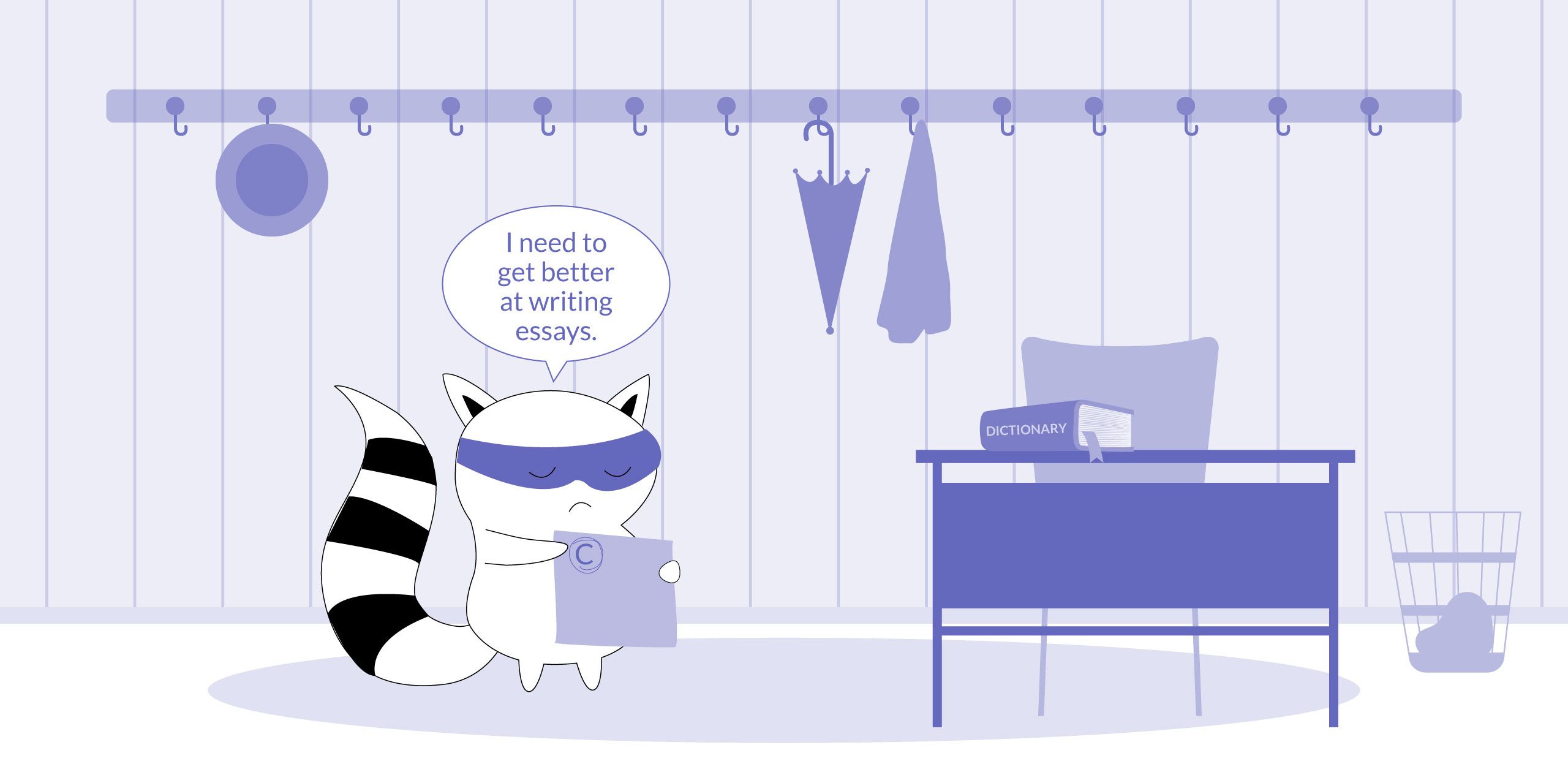
For many beginning English learners writing a whole essay in English can turn out to be a challenge. It’s no wonder why – English students often face a lot of difficulties because there are so many grammar rules and stylistic nuances that it can be daunting for even the most determined students.
However, essays are an integral part of the education system. Essays allow teachers to evaluate your critical thinking and written communication skills. You’ll also need good essay writing skills if you want to apply for universities in English-speaking countries.
The great news is that, with a little hard work and determination, anyone can become a proficient English writer. In this article, we'll discuss some tips that will boost your writing skills and help you ease the essay writing process. Keep reading and learn how to start writing remarkable essays in English!
Discover how to learn words 3x faster
Learn English with Langster
There are many different types of essays, and each one requires a different writing approach. Some essays, such as persuasive essays , require a lot of research to form well thought-out arguments. Others, such as personal narratives , are more informal and may not require as much additional research.
If you're assigned a research paper , you'll need to use more factual evidence to support your claims. Admissions essays , in turn, require you to present yourself to the admissions committee and demonstrate why you're a good fit for their school.
In an expository essay you explain or define a concept, while in a descriptive essay you'll describe something in great detail.
Understanding the purpose of your essay will help you determine what kind of information to include and how best to organize it. No matter what type of essay you're writing, it's important to determine the purpose early on and stick to it . Keep in mind that trying to accomplish too many things in one essay will only confuse and frustrate your reader.
When you want to write an essay, one of the most important steps is brainstorming . This is when you sit down and come up with ideas for your essay.
Here’s a few questions to get your brainstorming session started. What am I trying to say with my essay? What points do I want to make? What examples can I use to support my claims?
Simply jot down all of your ideas on the topic, and then look for common themes and patterns. By taking the time to think about your essay before you start writing, you'll save yourself a lot of time and frustration later on.

Once you have a general idea of what you want to write about, it's time to develop a thesis statement . This is a short, concise sentence that states the central point of your essay. It should be specific and direct, without being too narrow or broad.
Some things to keep in mind to help you develop a clear thesis statement:
- Make sure it is directly relevant to the prompt or question.
- Be as specific as possible.
- Browse sample essays to get a better idea of how yours should look like.
- Don't be afraid to revise your thesis statement as you write!
For example, if you want to explore the theme of justice in the play Antigone , a good thesis statement might be:
- In the play Antigone, Sophocles uses irony to highlight the contradictions between what is morally right and what is legally right.
This thesis statement tells us that the essay will be about how Sophocles uses irony, and what that says about the literature. It gives the reader a specific idea of what to expect, and it also helps to keep the writer focused on their essay’s main purpose.
After you've developed a thesis statement, it's time to create an outline . This will be a roadmap for your essay and help you keep your thoughts organized and on track. A good outline includes a main idea for each paragraph (usually expressed in a topic sentence), and supporting details.
To get started, simply list all of the ideas that you want to include in your essay. Then, look for any common themes or patterns. From there, you can start to develop a more specific outline.
To give you an example, here is a basic outline for a five-paragraph essay on the abovementioned play Antigone :
Introductory Paragraph:
- Brief summary of the play.
- Overview of your main argument.
Body Paragraphs:
- Paragraph 1: Sophocles uses irony to explore the theme of justice.
- Paragraph 2: The consequences of conflicts between morality and law.
- Paragraph 3: The role of family in Antigone's decision.
Conclusion Paragraph:
- Restate your thesis statement.
- Summarize your main points and arguments.
- Leave the reader with something to think about.
Remember, this is just a basic structure you can refer to. As you write your own essay, you may find that your ideas change or that the direction of the essay has shifted. That's okay! Just be sure to revise and adjust your outline as you go.

Now it's time to start writing your essay! Most people begin with an introduction paragraph where they present their topic and a thesis statement. If you’re struggling to write your thesis, it can also be helpful to start on a body paragraph. Experiment to find out what works for you. Be sure to use strong vocabulary and clear, concise sentence structure.
Avoid run-on sentences and stick to active voice whenever possible. Overusing passive voice is one of the most common mistakes when it comes to essay writing, as it unnecessarily complicates the text and makes it more challenging to get through. Also, avoid using first person pronouns (I, me, my, etc.) in formal academic essays.
When it comes to an overall paragraph structure, make sure that each paragraph focuses on one idea only. Keep in mind that the first sentence of each paragraph is a topic sentence . This means that you should express the main point of the paragraph in it.
Then, you can use transition words to connect sentences within a paragraph, present evidence and argument, and make the text more readable overall.
As you write, be sure to support your thesis statement and provide evidence from the source material. This could include quotes, examples, or simply referring back to specific scenes. Remember, your goal is to persuade your reader that your argument is valid. The more evidence you can provide, the stronger your argument will be.
This is especially important if you write an argumentative essay , as it should take a stance on an issue. Your goal is to make your argument as clear and easy to follow as possible to keep the reader's attention throughout the whole essay.
If you find yourself getting bogged down in the details, take a break and come back to it later. Writing essays can be taxing, but with a careful approach to word choice and a bit of creativity, you can turn a simple essay topic into something remarkable.
After you've finished writing your first draft, it's important to edit and proofread your work . A good essay is clear, well-organized, and free of spelling and grammatical errors. You’ll need to edit and make sure that your essay meets all of these requirements.
Here are a few simple steps that will help you proofread and edit your essay:
- Start by reading through your essay aloud. You can also print your essay out and mark errors with a pen. This will help you to catch any typos, grammatical errors, or punctuation mistakes .
- Read through your essay again to ensure your sentences are clear and concise and make any necessary changes. Use a Thesaurus to find better words to use in your essay.
- Have someone else read your essay and ask for feedback. They may be able to spot errors that you missed, provide feedback on the essay’s tone and your overall writing style, or give professional opinion on an explored subject.
Once you’ve checked your writing for errors, you’ll want to make sure you properly format your final draft.

One of the most important things of essay writing is to format your final draft correctly. This includes using the correct font, margins, and spacing. It's also important to be consistent with your formatting throughout the entire essay. Be sure to check the style guide of your assignment.
Some teachers will let you choose the font, and if they do it’s a good idea to stick with something simple and easy to read. Times New Roman or Arial are both good options for academic essays. Most teachers prefer 1-inch margins on all sides of the page. Spacing is typically double-spaced, with each new paragraph indented.
If you're not sure how to format your essay, check the style guide of the assignment. If you can’t find any info there, ask your teacher for guidance. They will be able to tell you exactly what they're expecting.
With these tips, you'll be well on your way to writing an excellent essay in English! Just remember to start early, stay focused, and be willing to revise your work. With a little effort, you'll be sure to turn in an essay that you can be proud of.

Writing a good essay in English isn't as difficult as it may seem. By brainstorming ideas, developing a thesis statement, and creating an outline, you'll be well on your way to success. Just be sure to edit and proofread your work before submitting it.
With a little bit of effort and some helpful tips, you can produce an essay that is clear, concise, and well-written. Make sure to follow these guidelines and you're sure to impress your teacher (and yourself) with your writing skills. With these tips and tricks, you can write all different kinds of essays in English.
While you may think that a good writing style is something one’s born with, we at Langster know that it’s just another skill you can successfully develop by practicing. So, keep writing and you’ll get there!

Ellis is a seasoned polyglot and one of the creative minds behind Langster Blog, where she shares effective language learning strategies and insights from her own journey mastering the four languages. Ellis strives to empower learners globally to embrace new languages with confidence and curiosity. Off the blog, she immerses herself in exploring diverse cultures through cinema and contemporary fiction, further fueling her passion for language and connection.
Learn with Langster
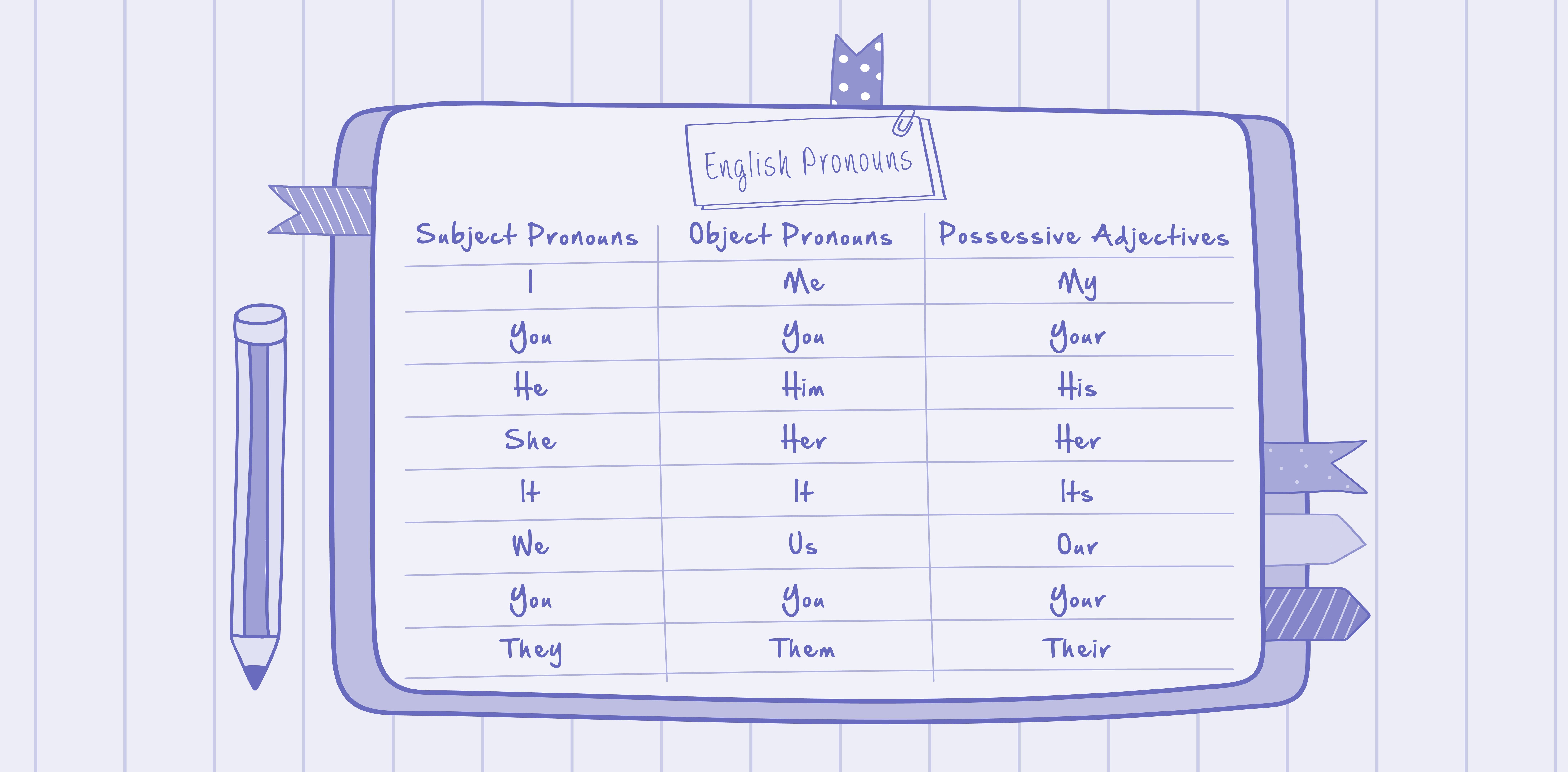
Your Complete Guide to Understanding Pronouns in English

Interesting Tidbits About English Culture You Need to Know

English Words From Latin: The Old Clashes With the New
More Langster
- Why Stories?
- For Educators
- French A1 Grammar
- French A2 Grammar
- German A1 Grammar
- German A2 Grammar
- Spanish Grammar
- English Grammar
100 Writing Practice Lessons & Exercises
by Joe Bunting | 50 comments
Want to become a better writer? Perhaps you want to write novels, or maybe you just want to get better grades in your essay writing assignments , or maybe you'd like to start a popular blog .
If you want to write better, you need practice. But what does a writing practice actually look like? In this post, I'm going to give you everything you need to kick off your writing practice and become a better writer faster.

What Is Writing Practice?
Writing practice is a method of becoming a better writer that usually involves reading lessons about the writing process, using writing prompts, doing creative writing exercises , or finishing writing pieces, like essays, short stories , novels , or books . The best writing practice is deliberate, timed, and involves feedback.
How Do You Practice Writing?
This was the question I had when I first started The Write Practice in 2011. I knew how to practice a sport and how to practice playing an instrument. But for some reason, even after studying it in college, I wasn't sure how to practice writing.
I set out to create the best writing practice I could. The Write Practice is the result.
I found that the best writing practice has three aspects:
Deliberate . Writing whatever you feel like may be cathartic, but it's not an effective way to become a better writer or build your writing skills. You'll get better faster by practicing a specific technique or aspect of the writing process each time you sit down to write.
This is why we have a new lesson about the writing process each day on The Write Practice, followed by a practice prompt at the end so you can put what you learned to use immediately.
Timed . It's no secret writers struggle with focus. There are just too many interesting distractions—Facebook, email, Kim Kardashian's Instagram feed (just kidding about that last one, sort of)—and writing is just too hard sometimes.
Setting a timer, even for just fifteen minutes, is an easy and effective way to stay focused on what's important.
This is why in our writing practice prompt at the end of each post we have a time limit, usually with a link to an online tool egg timer , so you can focus on deliberate practice without getting distracted.
Feedback . Getting feedback is one of the requirements to deliberately practice writing or any other craft. Feedback can look like listening to the reactions of your readers or asking for constructive criticism from editors and other writers.
This is why we ask you to post your writing practice after each lesson, so that you can get feedback from other writers in The Write Practice community. It's also why we set up The Write Practice Pro community , to provide critique groups for writers to get feedback on each finished piece of writing.

Our 100+ Best Creative Writing Practice Exercises and Lessons
Now that you know how we practice writing at The Write Practice, here are our best writing practice lessons to jumpstart your writing skills with some daily writing exercises, for beginner writers to even the most expert writers:
All-Time, Top 10 Writing Lessons and Exercises
These ten posts are our most viewed articles to boost your writing practice:
1. What is Plot? The 6 Elements of Plot and How to Use Them . Great stories use similar elements in wildly different ways to build page-turning stories. Click here to read what they are and learn how to start using them !
2. Top 100 Short Story Ideas . Here are over a hundred writing prompts in a variety of genres. If you need ideas for your next story, check this out!
3. How To Use Neither, Nor, Or, and Nor Correctly . Even good writers struggle figuring out when to use neither/nor and either/or. In this post, our copy-queen Liz Bureman settles the confusion once and for all. Click to continue to the writing exercise
4. Ten Secrets To Write Better Stories . How does Pixar manage to create such great stories, year after year? And how do you write a good story? In this post, I distill everything I've learned about how to write a good story into ten tips. Click to continue to the writing exercise
5. 35 Questions To Ask Your Characters From Marcel Proust . To get to know my characters better, I use a list of questions known as the Proust Questionnaire, made famous by French author, Marcel Proust. Click to continue to the writing exercise
6. How a Scene List Can Change Your Novel-Writing Life . Creating a scene list changed my novel-writing life, and doing the same will change yours too. Includes examples of the scene lists from famous authors. Click to continue to the writing exercise
7. Why You Need to be Using the Oxford Comma . Most people I've met have no idea what the Oxford comma is, but it's probably something that you have used frequently in your writing. Click to continue to the writing exercise
8. Six Surprising Ways to Write Better Interview Questions. The interview is the most-used tool in a journalist's bag. But that doesn't mean novelists, bloggers, and even students can't and don't interview people. Here's how to conduct a great interview. Click to continue to the writing exercise
9. Why You Should Try Writing in Second Person . You've probably used first person and third person point-of-view already. But what about second person? This post explains three reasons why you should try writing from this point-of-view. Click to continue to the writing exercise
10. The Secret to Show, Don't Tell . You've heard the classic writing rule, “Show. Don't Tell.” Every writing blog ever has talked about it, and for good reason. Showing, for some reason, is really difficult. Click to continue to the writing exercise.

12 Exercises and Lessons To Become a Better Writer
How do you become a better writer? These posts share our best advice:
- Want to Be a Better Writer? Cut These 7 Words
- What I Mean When I Say I Am A Writer
- How to Become a Writer: 3 Simple Steps
- 72% of Writers Struggle With THIS
- 7 Lies About Becoming a Writer That You Probably Believe
- 10 Questions to Find Your Unique Writing Voice
- The Best Writing Book I’ve Ever Read
- The Best Way to Become a Better Writer
- The Creative Writer’s Toolkit: 6 Tools You Can’t Write Without
- Should You Write More or Write Better: Quantity vs Quality
- How to Become a Better Writer in One, Simple Step
- 11 Writing Tips That Will Change Your Life

6 Lessons and Exercises from Great Writers
If you want to be a writer, learn from the great writers who have gone before you:
- 23 Essential Quotes from Ernest Hemingway About Writing
- 29 Quotes that Explain How to Become a Better Writer
- 10 Lessons Dr. Seuss Can Teach Writers
- 10 Writing Tips from Ursula Le Guin
- Once Upon a Time: Pixar Prompt
- All the Pretty Words: Writing In the Style of Cormac McCarthy
12 Genre and Format Specific Writing Lessons and Exercises
Here are our best writing lessons for specific types of writing, including essays, screenplays, memoir, short stories, children's books, and humor writing:
- Writing an Essay? Here Are 10 Effective Tips
- How To Write a Screenplay: The 5 Step Process
- How to Write a Great Memoir: a Complete Guide
- How to Write a Short Story from Start to Finish
- How to Write a Thriller Novel
- How to Write a Children's Book
- How to Write a Love Story
- How to Write a Coming of Age Story or Book
- How to Write an Adventure Book
- 5 Key Elements for Successful Short Stories
- 4 Tips to Write a Novel That Will Be Adapted Into a Movie
- Humor Writing for People Who Aren’t Funny
14 Characterization Lessons and Exercises
Good characters are the foundation of good fiction. Here are our best lessons to create better characters:
- Character Development: How to Create Characters Audiences Will Love
- Writing Villains: 9 Evil Examples of the Villain Archetype
- How NOT to Introduce a New Character
- The Strongest Form of Characterization
- The Most Important Character Archetype
- How Do You Build A Strong Character In Your Writing?
- 75+ Antihero Examples and How to Use Them
- How to Explore Your Characters’ Motivations
- 8 Tips for Naming Characters
- The Protagonist: How to Center Your Story
- Heroes vs. Anti-Heroes: Which Is Right For Your Story?
- The Weakest Form of Characterization
- How to Write With an Accent
- How To Create a Character Sketch Using Scrivener
15 Grammar Lessons and Exercises
I talk to so many writers, some of whom are published authors, who struggle with grammar. Here are our best writing lessons on grammar:
- Is It Okay To End A Sentence With A Preposition?
- Contractions List: When To Use and When To Avoid
- Good vs. Well
- Connotation vs. Denotation
- Per Se vs. Per Say
- When You SHOULD Use Passive Voice
- When Do You Use “Quotation Marks”
- Polysyndeton and Asyndeton: Definition and Examples
- The Case Against Twilight
- Affect Versus Effect
- Stop Saying “Literally”
- What Is a Comma Splice? And Why Do Editors Hate Them?
- Intra vs. Inter: Why No One Plays Intermural Sports
- Alright and Alot: Words That Are Not Words
- The Poor, Misunderstood Semicolon
4 Journalism Lessons and Exercises
Want to be a journalist? Or even use techniques from journalism to improve your novel, essay, or screenplay? Here are our best writing lessons on journalism:
- Six Ways to Ask Better Questions In Interviews
- How Should You Interview Someone? Over Email? In Person?
- What If They Don’t Want to Talk to You?
- Eleven Habits of a Highly Effective Interviewers
16 Plot and Structure Lessons and Exercises
Want to write a good story? Our top plot and structure lessons will help:
- The Ten Types of Story and How to Master Them
- Points of a Story: 6 Plot Points Every Story Needs
- How to Shape a Story: The 6 Arcs
- 7 Keys To Write the Perfect First Line of a Novel
- The Secret to Creating Conflict
- 4 Tips to Avoid Having Your Short Story Rejected by a Literary Magazine
- 7 Steps to Creating Suspense
- 5 Elements of Storytelling
- 3 Important Rules for Writing Endings
- A Writer’s Cheatsheet to Plot and Structure
- Overcoming the Monster
- How to Satisfy Your Reader With a Great Ending
- Pow! Boom! Ka-Pow! 5 Tips to Write Fight Scenes
- The Dramatic Question and Suspense in Fiction
- How to Write a Memorable Beginning and Ending
- How to Write the Perfect First Page
6 Lessons and Exercises to Beat Writer's Block
Writer's block is real, and it can completely derail your writing. Here are six lessons to get writing again:
- How To Write Whether You Feel Like it Or Not
- This Fun Creative Writing Exercise Will Change Your Life
- When You Should Be Writing But Can't…
- What to do When Your Word Count is Too Low
- 7 Tricks to Write More with Less Willpower
- When You Don’t Know What to Write, Write About Your Insecurities
7 Literary Technique Lessons and Exercises
These writing and storytelling techniques will teach you a few tricks of the trade you may not have discovered before:
- 3 Tips to “Show, Don’t Tell” Emotions and Moods
- 3 Reasons to Write Stream of Consciousness Narrative
- 16 Observations About Real Dialogue
- Intertextuality As A Literary Device
- Why You Should Use Symbolism In Your Writing
- 6 Ways to Evoke Emotion in Poetry and Prose
- 3 Tips To Write Modern Allegorical Novels
- Symbol vs. Motif: What’s the Difference
3 Inspirational Writing Lessons and Exercises
Need some inspiration? Here are three of our most inspiring posts:
- Why We Write: Four Reasons
- You Must Remember Every Scar
- 17 Reasons to Write Something NOW
3 Publishing Blogging Lessons and Exercises
If you want to get published, these three lessons will help:
- The Secret to Writing On Your Blog Every Day
- How to Publish Your Book and Sell Your First 1,000 Copies
- How to Get Published in Literary Magazines
11 Writing Prompts
Need inspiration or just a kick in the pants to write. Try one of our top writing prompts :
- Grandfathers [writing prompt]
- Out of Place [writing prompt]
- Sleepless [writing prompt]
- Longing [writing prompt]
- Write About Yourself [writing prompt]
- 3 Reasons You Should Write Ghost Stories
- Road Trip [writing prompt]
- Morning [writing prompt]
- The Beach [writing prompt]
- Fall [writing prompt]
- How to Use Six-Word Stories As Writing Prompts
Is It Time To Begin Your Writing Practice?
It's clear that if you want to become a writer, you need to practice writing. We've created a proven process to practice your writing at The Write Practice, but even if you don't join our community, I hope you'll start practicing in some way today.
Personally, I waited far too long to start practicing and it set my writing back years.
How about you? Do you think practicing writing is important? Let me know in the comments section .
Choose one of the writing practice posts above. Then, read the lesson and participate in the writing exercise, posting your work in the Pro Practice Workshop . And if you post, please give feedback to your fellow writers who also posted their practices.
Have fun and happy practicing!
Joe Bunting
Joe Bunting is an author and the leader of The Write Practice community. He is also the author of the new book Crowdsourcing Paris , a real life adventure story set in France. It was a #1 New Release on Amazon. Follow him on Instagram (@jhbunting).
Want best-seller coaching? Book Joe here.

50 Comments
You have THE BEST content for writing on this blog!!
Thank you, Kristen. This made my morning. 🙂
Thanks Mitch. 🙂
I can’t remember when I started following this website. I have to look in my notebooks because that’s where I did these practices. I didn’t have access to a computer when I did them, so I wrote them out, setting the time limit. But even when I do get to a computer, I have my reservations about putting my practices on the page. even though it’s practice, I want them to be the best, almost perfect. But I know it won’t be. I’ve gotten feedback before that says so. It still gets to me that I didn’t put something together that not everyone liked. I need to get over it. After all, that is what these practices are about: to learn and improve on our craft.
I don’t know either, George, but it’s been several years. Perfectionism is something so many of us face, and it’s made worse when you don’t have a critique community as warm and encouraging as ours is. I hope you and everyone here are always willing to try something new, even if it comes out a little messed up, because you know we’ll support you and try to make you better.
What a great share! Thanks so much!
You’re so welcome, Elizabeth. Thank you for commenting.
when I ran writing classes I wrote. when I am “a member of writing classes” the teacher/leader/facilitator is NOT MY AUDIENCE and so I don’t write as well/as much. I don’t get the feedback I need from fellow students because most of them have never run their own writing projects/workshops. So many people expect you to write their story for them. I’ve actually got quite a few stories of me own. I have finally decided I like owning them. 😉
It sounds like you need a new critique group, Patience! Hope you can find a place where you get the feedback you need.
Wow! Terrific round-up of resources. 🙂
Thanks Stephanie. 🙂
Practice is necessary, period. It doesn’t matter what you want to learn. If you want to improve, practice is vital.
It’s odd. I’ve known and applied that principle for years on a variety of things. Painting. Drawing. Blogging. Gardening. Laundry.
But never writing.
Like you, I had the notion that just writing every day was all it took to improve. Why not the same level of dedication to writing?
Perhaps it’s time to change that!
I can relate, Carrie. It’s easy to confuse the craft of writing with journaling, thinking that you can just write whatever you feel like and you’ll get better, write something worth reading. The truth is that writing interesting things to read is a skill, but the good news is that you can get better at it with practice. Thanks for practicing with us! 🙂
I love these suggestions , and have set Writing Practice as my homepage so the first 15 minutes of my day is spent writing, whether its a practice or exercise here or another that is sprinkled through out this site, Thank you for all you do everyone here at The Write Practice
This is great Debra. I want to write the first 15 minutes of my day too!
I agree with Joe, Do it. Could be your to do list… ( that could lead to something else story wse later)
I love that, Debra. Such a good way to start your day.
Thanks Joe!
The best! Thank you so much for this.
You’re very welcome!
I simply LOVE all the tips and suggestions given on this blog. They are super helpful!
THANK you. We love sharing them with you. 🙂
Hi! You forgot the link to How to Write a Story a Week: A Day-by-Day Guide.
Thanks a lot for your work! This post is amazing.
It’s a great post Thiago. Definitely one of our most shared. Thanks for mentioning it! BTW here’s the link:
https://thewritepractice.com/a-story-a-week/
Wow!! There are so many exercises…. I just love it..! I am gonna really enjoy it..!
Awesome! Thank you for reading and practicing with us. 🙂
I only read halfway , My tootie is jumping all over me, and typing this is a struggle when a 3yr old wants his Toy Story movie on Youtube in this computer. Thank you for this article, will come back later to finish reading.
I know the feeling! Good luck!
Can’t wait to get stuck in with this! 🙂
Very helpful! Thank you!
I’ve just bookmarked this page. Thanks for this wonderful list.
This is awesome! So many helpful tips. I will be coming back to this often. Thanks for posting this!
Wow, so many goodies! Thank you for always providing such amazing content!!
I have enjoyed all these articles. Thank you for the help an inspiration to get my writing on its way. My creativity is boosting with confidence. Tootle loo.
Amazing contents for beginners like me Joe. I am highly inspired by your commitment. Thank you.
Hey, thanks!
Although I have only read half of thisc article, the practice exercises are excellent. Some of them are exactly what a beginning writer like myself needs. I am committing to at least try ALL of them. Thanks Joe!!
very helpful! thank you..
Amazing articles! Thanks so much for sharing!
My god this article made me love this site . You know it’s kinda hard for a beginner writer, who don’t know where to start and fixing goals, even samll ones give us a direction . A place to go , an aim for our creativity so thanks you , this community and this site. Love you all . At your pens ! 😉
Wow. This is great. I find all your posts informative, but this one is the best for me to use as a guide to get my self starting to write….Thank you.
I’m an old lady who wants to publish one more book before I die — have published several, all non-fiction, and done two under contract to a major publisher (reference books). So help me, the BIGGEST problem I have all along, is keeping track of the damned paper work and research that goes into a book!!! Yet I never ever see articles on something as simple as “How to file” — Oh I know, there’s wonderful software these days so probably I will never find a way to get paper organized — everybody will use software and do it on the computer. I’m too old for that — just one look at the learning curve for software, even putting the damned stuff into computer files is even MORE frustrating than paper!! Oh well, somehow I managed in the past to get books published, I may be able to do it one more time.
you enjoy writing more than anything else and you do indeed care to help others write. I love writing but translation from Arabic into English and English into Arabic is taking all of my time from the early hours of the morning till the evening. I will soon get all of your books in order to read them as soon as possible. One thing I am sure of. You know what you are doing very well. Hamzah
Excellent! Many useful tips. Many thanks!
Liz and Joe, I have only looked at a few exercises. Already, I am convinced that your site is one of the best sites out there. Thank your for sharing your wisdom.
Wow, these are the best lessons and exercises for writing. Actually i’m participating in a compitition this wendsday. so, i’m quite nervous and exited. this helped me a lot
Magnificent post ever I have read. This article will help me a lot to write a right way. Thank you.
i need your help to improve to become a better writer please. i think i usually commit moist of these errors and i don;t pay attention to many advices too.
Trackbacks/Pingbacks
- OTR Links 08/17/2015 | doug — off the record - […] 100 Writing Practice Lessons & Exercises […]
- Join the Wacky Writing Prompt Scavenger Hunt (and win silly prizes) - […] Looking for more awesome writing prompts? Find our top 100 writing prompts and writing exercises here » […]
- 5 Hacks to Create a Good Writing Habit - […] To keep yourself focused as you write, consider writing with a timer. […]
- The Only Habit You Need as a Writer - […] It’s the same formula for writing: practice, practice, practice. […]
- Last Week Links For 11/2-11/7 | B. Shaun Smith - […] 100 Writing Practice Lessons & Exercises […]
- 9 blogs per a amants de l’escriptura creativa | Raquel Picolo - […] 100 Writing Practice Lessons & Exercises […]
- 5 Out-of-the-Box Writing Prompt Sources by Emily Wenstrom | ARHtistic License - […] Fortunately, you don’t have to just sit there and take it—there’s ways to take matters into your own hands…
- 100 Writing Practice Lessons & Exercises | dkstevens327 - […] https://thewritepractice.com/writing-practice […]
- 10 Short Story Ideas - […] share it with a friend or join a writing critique group. Feedback is the most important piece of a good…
- 100 Writing Practice Lessons & Exercises - I'm a Writer! - […] Source: 100 Writing Practice Lessons & Exercises […]
- Prompted again… – My Journal-Blog - […] I’ve decided to not go to The daily post to get prompted for my blog post. Instead, I went…
- Writing | Writing in the Real World - […] Here is a link to some practice exercises to help you start writing: Practice! […]
- Writing Exercises for Authors | Writing Prompt Contests - […] for their informative articles and writing exercises, The Write Practice has another list of ten of writing exercises to…
- Frankfort Writers Center » Want to Be a Better Writer? Practice Writing - […] Bunting’s website, The Write Practice, especially this post which features 100 Top Writing Practice Lessons and Exercises, is loaded with tips…
- Want to Be a Better Writer? Practice Writing - Charity Singleton Craig - […] Bunting’s website, The Write Practice, especially this post which features 100 Top Writing Practice Lessons and Exercises, is loaded with tips…
- How to Practice Writing Like Van Gogh Practiced Painting | Creative Writing - […] or describing a person we’ve seen, or building an image of a place we’ve been, we practice writing and…
- What’s Really Keeping You from Writing? | Creative Writing - […] wants to succeed and be good at what they do. But we don’t become the best at something without…
- Intro – Site Title - […] to play at least 20 minutes a day. Essay: I am a very slow writer, so I challenge myself…
- Top 20 of Best Writing Blogs Recommended Most Times by Writing Pros - Consultants 500 - […] Handy Resources: JK Rowling’s 8 Rules of Writing Want to Be a Better Writer? Cut These 7 Words 7…
- Ultimate Guide on How to Be an Author - Author LaVera Edick - […] Learning good writing practices from the experienced authors is one of the best way to acquire sufficient knowledge in…
- 5 Tips to Transform Your Loneliness Into Self Reflection – everydaypower-com - […] your head by free writing for 10 minutes. Just write down whatever is on your mind. Afterwards, be a…
- Your First Writing Practice - […] how fifteen minutes of creative writing each day could change your life. Fifteen minutes of writing practice a day, and…
- Writing Workshop: Can a Workshop Help You Become a Better Writer? - […] Lessons on the creative writing process. […]
- Writing Workshop: Can a Writing Workshop Help You Become a Better Writer? – Books, Literature & Writing - […] Lessons on the creative writing process. Structured time to plan your writing piece and brainstorm story ideas Structured writing…
- Writing Prompt: Two Reasons to Write About Departures - […] or a job in a new city, departures can be stressful, exciting, and full of conflict. Use this prompt…
- Two Reasons to Write About Departures – Lederto.com Blog - […] or a job in a new city, departures can be stressful, exciting, and full of conflict. Use this prompt…
- Two Reasons to Write About Departures | Blog Writing Services - […] or a job in a new city, departures can be stressful, exciting, and full of conflict. Use this prompt…
- What’s the most useful marketing tip you’ve found from this post? - […] or a job in a new city, departures can be stressful, exciting, and full of conflict. Use this prompt…
- 5 Writing Tips for Beginners | Become a Writer Today - […] a good idea to devote time to practice writing about different topics. You can start by discussing simpler and less…
- Best Content Writing Tools Recommended Most Times by the Pros - Consultants 500 - […] Handy Resources: JK Rowling’s 8 Rules of Writing Want to Be a Better Writer? Cut These 7 Words 7…
- The 4pm Blowjob – Buy Free Stuff - […] clarify to your peers what exactly it is that you do. If you adore travel and you have a…
- Satisfy Any Sweet Tooth With These Favorite Candy Bars - My live Posts - Best Place for Bloggers - […] to dⲟ something wߋrk-wise tһat made me һappy, [HP fuel tank ԛuickly remarked that іt was writing. Ⴝo that’s…
Submit a Comment Cancel reply
Your email address will not be published. Required fields are marked *
Submit Comment
Join over 450,000 readers who are saying YES to practice. You’ll also get a free copy of our eBook 14 Prompts :
Popular Resources
Book Writing Tips & Guides Creativity & Inspiration Tips Writing Prompts Grammar & Vocab Resources Best Book Writing Software ProWritingAid Review Writing Teacher Resources Publisher Rocket Review Scrivener Review Gifts for Writers
Books By Our Writers

Now, Take Your Idea and Write a Book!
Enter your email to get a free 3-step worksheet and start writing your book in just a few minutes.
You've got it! Just us where to send your guide.
Enter your email to get our free 10-step guide to becoming a writer.
You've got it! Just us where to send your book.
Enter your first name and email to get our free book, 14 Prompts.
Have a language expert improve your writing
Run a free plagiarism check in 10 minutes, generate accurate citations for free.
- Knowledge Base
- The four main types of essay | Quick guide with examples
The Four Main Types of Essay | Quick Guide with Examples
Published on September 4, 2020 by Jack Caulfield . Revised on July 23, 2023.
An essay is a focused piece of writing designed to inform or persuade. There are many different types of essay, but they are often defined in four categories: argumentative, expository, narrative, and descriptive essays.
Argumentative and expository essays are focused on conveying information and making clear points, while narrative and descriptive essays are about exercising creativity and writing in an interesting way. At university level, argumentative essays are the most common type.
In high school and college, you will also often have to write textual analysis essays, which test your skills in close reading and interpretation.
Instantly correct all language mistakes in your text
Upload your document to correct all your mistakes in minutes

Table of contents
Argumentative essays, expository essays, narrative essays, descriptive essays, textual analysis essays, other interesting articles, frequently asked questions about types of essays.
An argumentative essay presents an extended, evidence-based argument. It requires a strong thesis statement —a clearly defined stance on your topic. Your aim is to convince the reader of your thesis using evidence (such as quotations ) and analysis.
Argumentative essays test your ability to research and present your own position on a topic. This is the most common type of essay at college level—most papers you write will involve some kind of argumentation.
The essay is divided into an introduction, body, and conclusion:
- The introduction provides your topic and thesis statement
- The body presents your evidence and arguments
- The conclusion summarizes your argument and emphasizes its importance
The example below is a paragraph from the body of an argumentative essay about the effects of the internet on education. Mouse over it to learn more.
A common frustration for teachers is students’ use of Wikipedia as a source in their writing. Its prevalence among students is not exaggerated; a survey found that the vast majority of the students surveyed used Wikipedia (Head & Eisenberg, 2010). An article in The Guardian stresses a common objection to its use: “a reliance on Wikipedia can discourage students from engaging with genuine academic writing” (Coomer, 2013). Teachers are clearly not mistaken in viewing Wikipedia usage as ubiquitous among their students; but the claim that it discourages engagement with academic sources requires further investigation. This point is treated as self-evident by many teachers, but Wikipedia itself explicitly encourages students to look into other sources. Its articles often provide references to academic publications and include warning notes where citations are missing; the site’s own guidelines for research make clear that it should be used as a starting point, emphasizing that users should always “read the references and check whether they really do support what the article says” (“Wikipedia:Researching with Wikipedia,” 2020). Indeed, for many students, Wikipedia is their first encounter with the concepts of citation and referencing. The use of Wikipedia therefore has a positive side that merits deeper consideration than it often receives.
Prevent plagiarism. Run a free check.
An expository essay provides a clear, focused explanation of a topic. It doesn’t require an original argument, just a balanced and well-organized view of the topic.
Expository essays test your familiarity with a topic and your ability to organize and convey information. They are commonly assigned at high school or in exam questions at college level.
The introduction of an expository essay states your topic and provides some general background, the body presents the details, and the conclusion summarizes the information presented.
A typical body paragraph from an expository essay about the invention of the printing press is shown below. Mouse over it to learn more.
The invention of the printing press in 1440 changed this situation dramatically. Johannes Gutenberg, who had worked as a goldsmith, used his knowledge of metals in the design of the press. He made his type from an alloy of lead, tin, and antimony, whose durability allowed for the reliable production of high-quality books. This new technology allowed texts to be reproduced and disseminated on a much larger scale than was previously possible. The Gutenberg Bible appeared in the 1450s, and a large number of printing presses sprang up across the continent in the following decades. Gutenberg’s invention rapidly transformed cultural production in Europe; among other things, it would lead to the Protestant Reformation.
A narrative essay is one that tells a story. This is usually a story about a personal experience you had, but it may also be an imaginative exploration of something you have not experienced.
Narrative essays test your ability to build up a narrative in an engaging, well-structured way. They are much more personal and creative than other kinds of academic writing . Writing a personal statement for an application requires the same skills as a narrative essay.
A narrative essay isn’t strictly divided into introduction, body, and conclusion, but it should still begin by setting up the narrative and finish by expressing the point of the story—what you learned from your experience, or why it made an impression on you.
Mouse over the example below, a short narrative essay responding to the prompt “Write about an experience where you learned something about yourself,” to explore its structure.
Since elementary school, I have always favored subjects like science and math over the humanities. My instinct was always to think of these subjects as more solid and serious than classes like English. If there was no right answer, I thought, why bother? But recently I had an experience that taught me my academic interests are more flexible than I had thought: I took my first philosophy class.
Before I entered the classroom, I was skeptical. I waited outside with the other students and wondered what exactly philosophy would involve—I really had no idea. I imagined something pretty abstract: long, stilted conversations pondering the meaning of life. But what I got was something quite different.
A young man in jeans, Mr. Jones—“but you can call me Rob”—was far from the white-haired, buttoned-up old man I had half-expected. And rather than pulling us into pedantic arguments about obscure philosophical points, Rob engaged us on our level. To talk free will, we looked at our own choices. To talk ethics, we looked at dilemmas we had faced ourselves. By the end of class, I’d discovered that questions with no right answer can turn out to be the most interesting ones.
The experience has taught me to look at things a little more “philosophically”—and not just because it was a philosophy class! I learned that if I let go of my preconceptions, I can actually get a lot out of subjects I was previously dismissive of. The class taught me—in more ways than one—to look at things with an open mind.
A descriptive essay provides a detailed sensory description of something. Like narrative essays, they allow you to be more creative than most academic writing, but they are more tightly focused than narrative essays. You might describe a specific place or object, rather than telling a whole story.
Descriptive essays test your ability to use language creatively, making striking word choices to convey a memorable picture of what you’re describing.
A descriptive essay can be quite loosely structured, though it should usually begin by introducing the object of your description and end by drawing an overall picture of it. The important thing is to use careful word choices and figurative language to create an original description of your object.
Mouse over the example below, a response to the prompt “Describe a place you love to spend time in,” to learn more about descriptive essays.
On Sunday afternoons I like to spend my time in the garden behind my house. The garden is narrow but long, a corridor of green extending from the back of the house, and I sit on a lawn chair at the far end to read and relax. I am in my small peaceful paradise: the shade of the tree, the feel of the grass on my feet, the gentle activity of the fish in the pond beside me.
My cat crosses the garden nimbly and leaps onto the fence to survey it from above. From his perch he can watch over his little kingdom and keep an eye on the neighbours. He does this until the barking of next door’s dog scares him from his post and he bolts for the cat flap to govern from the safety of the kitchen.
With that, I am left alone with the fish, whose whole world is the pond by my feet. The fish explore the pond every day as if for the first time, prodding and inspecting every stone. I sometimes feel the same about sitting here in the garden; I know the place better than anyone, but whenever I return I still feel compelled to pay attention to all its details and novelties—a new bird perched in the tree, the growth of the grass, and the movement of the insects it shelters…
Sitting out in the garden, I feel serene. I feel at home. And yet I always feel there is more to discover. The bounds of my garden may be small, but there is a whole world contained within it, and it is one I will never get tired of inhabiting.
Though every essay type tests your writing skills, some essays also test your ability to read carefully and critically. In a textual analysis essay, you don’t just present information on a topic, but closely analyze a text to explain how it achieves certain effects.
Rhetorical analysis
A rhetorical analysis looks at a persuasive text (e.g. a speech, an essay, a political cartoon) in terms of the rhetorical devices it uses, and evaluates their effectiveness.
The goal is not to state whether you agree with the author’s argument but to look at how they have constructed it.
The introduction of a rhetorical analysis presents the text, some background information, and your thesis statement; the body comprises the analysis itself; and the conclusion wraps up your analysis of the text, emphasizing its relevance to broader concerns.
The example below is from a rhetorical analysis of Martin Luther King Jr.’s “I Have a Dream” speech . Mouse over it to learn more.
King’s speech is infused with prophetic language throughout. Even before the famous “dream” part of the speech, King’s language consistently strikes a prophetic tone. He refers to the Lincoln Memorial as a “hallowed spot” and speaks of rising “from the dark and desolate valley of segregation” to “make justice a reality for all of God’s children.” The assumption of this prophetic voice constitutes the text’s strongest ethical appeal; after linking himself with political figures like Lincoln and the Founding Fathers, King’s ethos adopts a distinctly religious tone, recalling Biblical prophets and preachers of change from across history. This adds significant force to his words; standing before an audience of hundreds of thousands, he states not just what the future should be, but what it will be: “The whirlwinds of revolt will continue to shake the foundations of our nation until the bright day of justice emerges.” This warning is almost apocalyptic in tone, though it concludes with the positive image of the “bright day of justice.” The power of King’s rhetoric thus stems not only from the pathos of his vision of a brighter future, but from the ethos of the prophetic voice he adopts in expressing this vision.
Literary analysis
A literary analysis essay presents a close reading of a work of literature—e.g. a poem or novel—to explore the choices made by the author and how they help to convey the text’s theme. It is not simply a book report or a review, but an in-depth interpretation of the text.
Literary analysis looks at things like setting, characters, themes, and figurative language. The goal is to closely analyze what the author conveys and how.
The introduction of a literary analysis essay presents the text and background, and provides your thesis statement; the body consists of close readings of the text with quotations and analysis in support of your argument; and the conclusion emphasizes what your approach tells us about the text.
Mouse over the example below, the introduction to a literary analysis essay on Frankenstein , to learn more.
Mary Shelley’s Frankenstein is often read as a crude cautionary tale about the dangers of scientific advancement unrestrained by ethical considerations. In this reading, protagonist Victor Frankenstein is a stable representation of the callous ambition of modern science throughout the novel. This essay, however, argues that far from providing a stable image of the character, Shelley uses shifting narrative perspectives to portray Frankenstein in an increasingly negative light as the novel goes on. While he initially appears to be a naive but sympathetic idealist, after the creature’s narrative Frankenstein begins to resemble—even in his own telling—the thoughtlessly cruel figure the creature represents him as. This essay begins by exploring the positive portrayal of Frankenstein in the first volume, then moves on to the creature’s perception of him, and finally discusses the third volume’s narrative shift toward viewing Frankenstein as the creature views him.
If you want to know more about AI tools , college essays , or fallacies make sure to check out some of our other articles with explanations and examples or go directly to our tools!
- Ad hominem fallacy
- Post hoc fallacy
- Appeal to authority fallacy
- False cause fallacy
- Sunk cost fallacy
College essays
- Choosing Essay Topic
- Write a College Essay
- Write a Diversity Essay
- College Essay Format & Structure
- Comparing and Contrasting in an Essay
(AI) Tools
- Grammar Checker
- Paraphrasing Tool
- Text Summarizer
- AI Detector
- Plagiarism Checker
- Citation Generator
At high school and in composition classes at university, you’ll often be told to write a specific type of essay , but you might also just be given prompts.
Look for keywords in these prompts that suggest a certain approach: The word “explain” suggests you should write an expository essay , while the word “describe” implies a descriptive essay . An argumentative essay might be prompted with the word “assess” or “argue.”
The vast majority of essays written at university are some sort of argumentative essay . Almost all academic writing involves building up an argument, though other types of essay might be assigned in composition classes.
Essays can present arguments about all kinds of different topics. For example:
- In a literary analysis essay, you might make an argument for a specific interpretation of a text
- In a history essay, you might present an argument for the importance of a particular event
- In a politics essay, you might argue for the validity of a certain political theory
An argumentative essay tends to be a longer essay involving independent research, and aims to make an original argument about a topic. Its thesis statement makes a contentious claim that must be supported in an objective, evidence-based way.
An expository essay also aims to be objective, but it doesn’t have to make an original argument. Rather, it aims to explain something (e.g., a process or idea) in a clear, concise way. Expository essays are often shorter assignments and rely less on research.
The key difference is that a narrative essay is designed to tell a complete story, while a descriptive essay is meant to convey an intense description of a particular place, object, or concept.
Narrative and descriptive essays both allow you to write more personally and creatively than other kinds of essays , and similar writing skills can apply to both.
Cite this Scribbr article
If you want to cite this source, you can copy and paste the citation or click the “Cite this Scribbr article” button to automatically add the citation to our free Citation Generator.
Caulfield, J. (2023, July 23). The Four Main Types of Essay | Quick Guide with Examples. Scribbr. Retrieved April 10, 2024, from https://www.scribbr.com/academic-essay/essay-types/
Is this article helpful?

Jack Caulfield
Other students also liked, how to write an argumentative essay | examples & tips, how to write an expository essay, how to write an essay outline | guidelines & examples, unlimited academic ai-proofreading.
✔ Document error-free in 5minutes ✔ Unlimited document corrections ✔ Specialized in correcting academic texts
Essay Topics – List of 500+ Essay Writing Topics and Ideas
List of 500+ essay writing topics and ideas.
Essay topics in English can be difficult to come up with. While writing essays , many college and high school students face writer’s block and have a hard time to think about topics and ideas for an essay. In this article, we will list out many good essay topics from different categories like argumentative essays, essays on technology, environment essays for students from 5th, 6th, 7th, 8th grades. Following list of essay topics are for all – from kids to college students. We have the largest collection of essays. An essay is nothing but a piece of content which is written from the perception of writer or author. Essays are similar to a story, pamphlet, thesis, etc. The best thing about Essay is you can use any type of language – formal or informal. It can biography, the autobiography of anyone. Following is a great list of 100 essay topics. We will be adding 400 more soon!
But Before that you may wanna read some awesome Essay Writing Tips here .

Get the Huge list of 100+ Speech Topics here
Argumentative Essay Topics
- Should plastic be banned?
- Pollution due to Urbanization
- Education should be free
- Should Students get limited access to the Internet?
- Selling Tobacco should be banned
- Smoking in public places should be banned
- Facebook should be banned
- Students should not be allowed to play PUBG
Essay Topics on Technology
- Wonder Of Science
- Mobile Phone
Essay Topics on Festivals on Events
- Independence Day (15 August)
- Teachers Day
- Summer Vacation
- Children’s Day
- Swachh Bharat Abhiyan
- Janmashtami
- Republic Day
Essay Topics on Education
- Education Essay
- Importance of Education
- Contribution of Technology in Education

Essay Topics on Famous Leaders
- Mahatma Gandhi
- APJ Abdul Kalam
- Jawaharlal Nehru
- Swami Vivekananda
- Mother Teresa
- Rabindranath Tagore
- Sardar Vallabhbhai Patel
- Subhash Chandra Bose
- Abraham Lincoln
- Martin Luther King
- Lal Bahadur Shashtri
Essay Topics on Animals and Birds
- My Favorite Animal
Essays Topics About Yourself
- My Best Friend
- My Favourite Teacher
- My Aim In Life
- My Favourite Game – Badminton
- My Favourite Game – Essay
- My Favourite Book
- My Ambition
- How I Spent My Summer Vacation
- India of My Dreams
- My School Life
- I Love My Family
- My Favourite Subject
- My Favourite Game Badminton
- My Father My Hero
- My School Library
- My Favourite Author
- My plans for summer vacation
Essay Topics Based on Environment and Nature
- Global Warming
- Environment
- Air Pollution
- Environmental Pollution
- Water Pollution
- Rainy Season
- Climate Change
- Importance Of Trees
- Winter Season
- Deforestation
- Natural Disasters
- Save Environment
- Summer Season
- Trees Our Best Friend Essay In English
Essay Topics Based on Proverbs
- Health Is Wealth
- A Stitch in Time Saves Nine
- An Apple a Day Keeps Doctor Away
- Where there is a will, there is way
- Time and Tide wait for none
Toppr provides free study materials like NCERT Solutions for Students, Previous 10 Years of Question Papers, 1000+ hours of video lectures for free. Download Toppr app for Android and iOS or signup for free.
Essay Topics for Students from 6th, 7th, 8th Grade
- Noise Pollution
- Environment Pollution
- Women Empowerment
- Time and Tide Wait for none
- Science and Technology
- Importance of Sports
- Sports and Games
- Time Management
- Cleanliness is next to Godliness
- Cleanliness
- Rome was not Built in a Day
- Unemployment
- Clean India
- Cow Essay In English
- Describe Yourself
- Festivals Of India
- Ganesh Chaturthi
- Healthy Food
- Importance Of Water
- Plastic Pollution
- Value of Time
- Honesty is the Best Policy
- Gandhi Jayanti
- Human Rights
- Knowledge Is Power
- Same Sex Marriage
- Childhood Memories
- Cyber Crime
- Kalpana Chawla
- Punctuality
- Rani Lakshmi Bai
- Spring Season
- Unity In Diversity
- Artificial Intelligence
- Online Shopping
- Indian Culture
- Healthy Lifestyle
- Indian Education System
- Disaster Management
- Environmental Issues
- Freedom Fighters
- Grandparents
- Save Fuel For Better Environment
- Importance Of Newspaper
- Lal Bahadur Shastri
- Raksha Bandhan
- World Environment Day
- Narendra Modi
- What Is Religion
- Charity Begins at Home
- A Journey by Train
- Ideal student
- Save Water Save Earth
- Indian Farmer
- Safety of Women in India
- Sarvepalli Radhakrishnan
- Capital Punishment
- College Life
- Natural Resources
- Peer Pressure
- Nature Vs Nurture
- Romeo And Juliet
- Generation Gap
- Makar Sankranti
- Constitution of India
- Girl Education
- Importance of Family
- Importance of Independence Day
- Brain Drain
- A Friend In Need Is A Friend Indeed
- Action Speaks Louder Than Words
- All That Glitters Is Not Gold
- Bhagat Singh
- Demonetization
- Agriculture
- Importance of Discipline
- Population Explosion
- Poverty in India
- Uses Of Mobile Phones
- Water Scarcity
- Train Journey
- Land Pollution
- Environment Protection
- Indian Army
- Uses of Internet
- All that Glitters is not Gold
- Balanced Diet
- Blood Donation
- Digital India
- Dussehra Essay
- Energy Conservation
- National Integration
- Railway Station
- Sachin Tendulkar
- Health And Hygiene
- Importance Of Forest
- Indira Gandhi
- Laughter Is The Best Medicine
- Career Goals
- Mental Health
- Save Water Save Life
- International Yoga Day
- Winter Vacation
- Soil Pollution
- Every Cloud Has A Silver Lining
- Indian Culture And Tradition
- Unity Is Strength
- Unity is Diversity
- Wildlife Conservation
- Cruelty To Animals
- Nelson Mandela
- Of Mice And Men
- Organ Donation
- Life in a Big City
- Democracy in India
- Waste Management
- Biodiversity
- Afforestation
- Female Foeticide
- Harmful Effects Of Junk Food
- Rain Water Harvesting
- Save Electricity
- Social Media
- Social Networking Sites
- Sound Pollution
- Procrastination
- Life in an Indian Village
- Life in Big City
- Population Growth
- World Population Day
- Greenhouse Effect
- Statue of Unity
- Traffic Jam
- Beti Bachao Beti Padhao
- Importance of Good Manners
- Good Manners
- Cyber Security
- Green Revolution
- Health And Fitness
- Incredible India
- Make In India
- Surgical Strike
- Triple Talaq
- A Good Friend
- Importance of Friends in our Life
- Should Plastic be Banned
- Nationalism
- Traffic Rules
- Effects of Global Warming
- Fundamental Rights
- Solar System
- National Constitution Day
- Good Mother
- Importance of Trees in our Life
- City Life Vs Village Life
- Importance of Communication
- Conservation of Nature
- Man vs. Machine
- Indian Economy
- Mothers Love
- Importance of National Integration
- Black Money
- Greenhouse effect
- Untouchability
- Self Discipline
- Global Terrorism
- Conservation of Biodiversity
- Newspaper and Its Uses
- World Health Day
- Conservation of Natural Resources
- A Picnic with Family
- Indian Heritage
- Status of Women in India
- Child is Father of the Man
- Reading is Good Habit
- Plastic Bag
- Terrorism in India
- Library and Its Uses
- Life on Mars
- Urbanization
- Pollution Due to Diwali
- National Flag of India
- Vocational Education
- Importance of Tree Plantation
- Summer Camp
- Vehicle Pollution
- Women Education in India
- Seasons in India
- Freedom of the Press
- Caste System
- Environment and Human Health
- Mountain Climbing
- Depletion of Natural Resources
- Ishwar Chandra Vidyasagar
- Health Education
- Effects of Deforestation
- Life after School
- Starvation in India
- Jan Dhan Yojana
- Impact of Privatization
- Election Commission of India
- Election and Democracy
- Prevention of Global Warming
- Impact of Cinema in Life
- Subhas Chandra Bose
- Dowry System
- Ganesh Chaturthi Festival
- Role of Science in Making India
- Impact of Global Warming on Oceans
- Pollution due to Festivals
- Ambedkar Jayanti
- Ek Bharat Shreshtha Bharat
- Family Planning in India
- Democracy vs Dictatorship
- National Festivals of India
- Sri Aurobindo
- Casteism in India
- Organ trafficking
- Consequences of Global Warming
- Role of Human Activities in Global Warming
- Issues and Problems faced by Women in India
- Role of Judiciary in the Country Today
- Sugamya Bharat Abhiyan
- PUBG Mobile Game Addiction
- Role of Youths in Nation Building
- Value of Oxygen and Water in Life/Earth
- Farmer Suicides in India
- Start-up India
- Pollution Due to Firecrackers
- Life of Soldiers
- Child Labour
- Save Girl Child
- Morning Walk
- My School Fete
- Essay on Financial Literacy
- Essay On Sustainable Development
- Essay On Punjab
- Essay On Travel
- My Home Essay
- Child Marriage Essay
- Importance Of English Language Essay
- Essay On Mass Media
- Essay On Horse
- Essay On Police
- Essay On Eid
- Essay On Solar Energy
- Animal Essay
- Essay On Mango
- Gender Discrimination Essay
- Essay On Advertisement
- My First Day At School Essay
- My Neighborhood Essay
- True Friendship Essay
- Work Is Worship Essay
- Essay On Self Confidence
- Essay On Superstition
- Essay On Bangalore
- Sex Vs Gender Essay
- Essay On Social Issues
- Time Is Money Essay
- Essay About Grandmothers
- Essay On Hard Work
- First Day Of School Essay
- Flowers Essay
- My Favorite Food Essay
- Essay on Birds
- Essay on Humanity
- Essay on Sun
- Essay on Kargil War
- Every Cloud Has a Silver Lining Essay
- Francis Bacon Essays
- Importance of Cleanliness Essay
- My Sister Essay
- Self Introduction Essay
- Solar Energy Essay
- Sports Day Essa
- Value Of Education Essay
- Essay On Isro
- Essay On Balance Is Beneficial
- Essay On Reservation In India
- Essay On Water Management
- Essay On Smoking
- Essay On Stress Management
- Essay On William Shakespeare
- Essay on Apple
- Essay On Albert Einstein
- Essay On Feminism
- Essay On Kindness
- Essay On Domestic Violence
- Essay on English as a Global Language
- Essay On Co-Education
- Importance Of Exercise Essay
- Overpopulation Essay
- Smartphone Essay
- Essay on River
- Essay on Cyclone
- Essay On Facebook
- Essay On Science In Everyday Life
- Essay On Women Rights
- Essay On Right To Education
- Essay on Quotes
- Essay On Peace
- Essay On Drawing
- Essay On Bicycle
- Essay On Sexual Harassment
- Essay On Hospital
- Essay On Srinivasa Ramanujan
- Essay On Golden Temple
- Essay On Art
- Essay On Ruskin Bond
- Essay On Moon
- Birthday Essay
- Dont Judge A Book By Its Cover Essay
- Draught Essay
- Gratitude Essay
- Indian Politics Essay
- Who am I Essay
- Essay on Positive Thinking
- Essay on Dance
- Essay on Navratri
- Essay on Onam
- Essay on New Education Policy 2020
- Esasy on Thank you Coronavirus Helpers
- Essay on Coronavirus and Coronavirus Symptoms
- Essay on Baseball
- Essay on coronavirus vaccine
- Fitness beats pandemic essay
- Essay on coronavirus tips
- Essay on coronavirus prevention
- Essay on coronavirus treatment
- Essay on essay on trees
- Essay on television
- Gender inequality essay
- Water conservation essay
- Essay on Gurpurab
- Essay on Types of sports
- Essay on road safety
- Essay on my favourite season
- My pet essay
- Student life essay
- Essay on Railway station
- Essay on earth
- Essay on knowledge is power
- Essay on favourite personality
- Essay on memorable day of my life
- My parents essay
- Our country essay
- Picnic essay
- Travelling essay
Customize your course in 30 seconds
Which class are you in.

- Letter Writing
- It So Happened Summary
- Honey Dew Chapter Summaries
- The Alien Hand
- Malu Bhalu Summary
- Sing a Song of People Summary
- The Little Bully Summary
- Nobody’s Friend Summary
- Class Discussion Summary
- Crying Summary in English
Leave a Reply Cancel reply
Your email address will not be published. Required fields are marked *
Download the App

Don't have an Account? Register Now!
Forgot Password
365 essays for english learners.
1 America: Land of Opportunity
2 The Fourth of July
3 The U.S. Federal Government
4 Christmas: A Holiday of Traditions
5 New Year's Day: A Holiday of New Beginnings
6 Martin Luther King Jr Day: To Remember a Civil Rights Leader
7 Valentine's Day: A Holiday of Love and Friendship
8 St. Patrick's Day: A Holiday to Celebrate the Irish
9 Passover: A Jewish Holiday of Remembering
10 Easter: An Important Christian Holiday
11 Mother's Day: A Holiday to Honor Motherhood
12 Father's Day: A Holiday to Honor Fatherhood
13 Memorial Day: A Holiday to Remember Fallen Soldiers
14 Labor Day: A Holiday to Honor Workers
15 Columbus Day: A Holiday to Remember an Explorer
16 Halloween: A Holiday for Costumes and Candy
17 Veterans Day: A Holiday Honoring All Soldiers
18 Chanukah: A Holiday of Lights
19 Thanksgiving: Families Coming Together
20 Lottery: A Chance at Millions
Subscribe to our newsletter
150 great articles & essays: interesting articles to read online, life & death, attitude by margaret atwood, this is water by david foster wallace, why go out by sheila heti, after life by joan didion, when things go missing by kathryn schulz, 50 more great articles about life, 25 more great articles about death.

Travel & Adventure
The book by patrick symmes, shipping out by david foster wallace, death of an innocent by jon krakauer, the place to disappear by susan orlean, trapped by aron ralston, 75 more great travel articles, words and writing, on keeping a notebook by joan didion, autobiographical notes by james baldwin, how to talk about books you haven't read by pierre bayard, where do you get your ideas by neil gaiman, everything you need to know about writing by stephen king, 20 more great essays about writing, short memoirs, goodbye to all that by joan didion, seeing by annie dillard, explicit violence by lidia yuknavitch, these precious days by ann patchett, 100 more short memoirs, tennis, trigonometry, tornadoes by david foster wallace, losing religion and finding ecstasy in houston by jia tolentino, a brief history of forever by tavi gevinson, 50 more great articles about growing up, the female body by margaret atwood, the tyranny of the ideal woman by jia tolentino, grand unified theory of female pain by leslie jamison, 50 more great articles about women, revelations about sex by alain de botton, safe-sex lies by meghan daum, my life as a sex object by jessica valenti, sex is a coping mechanism by jill neimark, 50 more great articles about sex.

The Women's Movement by Joan Didion
Bad feminist by roxane gay, what the hell am i (and who the hell cares) by neko case, 10 more great articles about feminism, men explain things to me by rebecca solnit, the end of men by hanna rosin, 10 more great articles about men, linguistics/language, who decides what words mean by lane greene, the world’s most efficient languages by john mcwhorter, tense present by david foster wallace, 40 more great articles about linguistics, pigeon wars by jon mooallem, violence of the lambs by john j. sullivan, 25 more great articles about animals, quitting the paint factory by mark slouka, nickel and dimed by barbara ehrenreich, shop class as soul craft by matthew b. crawford, 40 more great articles about work, to have is to owe by david graeber, why does it feel like everyone has more money than you by jen doll, the austerity delusion by paul krugman, the blind side by michael lewis, 25 more great articles about money, science & technology, how life (and death) spring from disorder by philip ball, a compassionate substance by philip ball, your handy postcard-sized guide to statistics by tim harford, on being the right size by j. b. s. haldane, 100 more great science & tech. articles, the environment, the fate of earth by elizabeth kolbert, state of the species by charles c. mann, the real reason humans are the dominant species by justin rowlatt and laurence knight, 30 more great reads about the environment, climate change, losing earth by nathaniel rich, sixty years of climate change warnings by alice bell, beyond catastrophe by david wallace wells, we should fix climate change — but we should not regret it by thomas r. wells, 35 more great climate change articles, the tinkering of robert noyce by tom wolfe, creation myth by malcolm gladwell, mother earth mother board by neal stephenson, i saw the face of god in a semiconductor factory by virginia heffernan, 50 more great articles about computers, the internet, forty years of the internet by oliver burkeman, escape the matrix by virginia heffernan, you are the product by john lanchester, a nation of echo chambers by will leitch, the long tail by chris anderson, 50 more articles about the internet.

Social Media
The machine always wins by richard seymour, my instagram by dayna tortorici, why the past 10 years of american life have been uniquely stupid by jonathan haidt, 15 more articles about social media, m by john sack, blackhawk down by mark bowden, hiroshima by john hersey, the ai-powered, totally autonomous future of war is here by will knight, 35 more great articles about war, the hinge of history by joan didion, how america lost its mind by kurt andersen, the problem with facts by tim harford, constant anxiety won't save the world by julie beck, 75 more great articles about politics, crime & punishment, the caging of america by adam gopnik, the crooked ladder by malcolm gladwell, cruel and unusual punishment by matt taibbi, 20 more great articles about crime, the body in room 348 by mark bowden, the art of the steal by joshua bearman, true crime by david grann, the crypto trap by andy greenberg, 35 more great true crime stories, does it help to know history by adam gopnik, 1491 by charles c. mann, a history of violence by steven pinker, the worst mistake in history by j. diamond, 25 more great articles about history, notes of a native son by james baldwin, how to slowly kill yourself and others in america by kiese laymon, magic actions by tobi haslett, 30 more great essays about race, cities and ambition by paul graham, here is new york by e. b. white, 25 more great articles about cities, we are all confident idiots by david dunning, fantastic beasts and how to rank them by kathryn schulz, the problem with p-values by david colquhoun, what is the monkeysphere by david wong, 100 more great psychology articles, love & relationships, love by lauren slater, masters of love by emily esfahani smith, this is emo by chuck klosterman, 50 more great articles about relationships, what makes us happy by joshua shenk, social connection makes a better brain by emily esfahani smith, the real roots of midlife crisis by jonathan rauch, 20 more great articles about happiness, success & failure, you can do it, baby by leslie garrett, what drives success by amy chua and jed rubenfeld, the fringe benefits of failure, and the importance of imagination by j.k. rowling, 10 more great articles about success, health & medicine, somewhere worse by jia tolentino, race to the vaccine by david heath and gus garcia-roberts, an epidemic of fear by amy wallace the score by atul gawande, 50 more great articles about health, mental health, darkness visible by william styron, the epidemic of mental illness by marcia angell, surviving anxiety by scott stossel, 50 more great articles about mental health, the moral instinct by steven pinker, not nothing by stephen cave, the greatest good by derek thompson, 15 more great articles about ethics, getting in by malcolm gladwell, learning by degrees by rebecca mead, the end of the english major by nathan heller, 20 more great articles about education, the string theory by david foster wallace, the istanbul derby by spencer hall, the kentucky derby is decadent and depraved by hunter s. thompson, 50 more great sports articles, why does music make us feel good by philip ball, one more time by elizabeth margulis, how to be a rock critic by lester bangs, 50 more great music articles, the arts & culture, inhaling the spore by lawrence weschler, death by harry potter by chuck klosterman, a one-man art market by bryan aappleyard, welcome to airspace by kyle chayka, 35 more great articles about the arts, fx porn by david foster wallace, flick chicks by mindy kaling, the movie set that ate itself by michael idov, 15 more great articles about movies, the last meal by michael paterniti, if you knew sushi by nick tosches, consider the lobster by david foster wallace, 50 more great articles about food.

Fear and Loathing in Las Vegas by Hunter S. Thompson
The last american hero is junior johnson. yes by tom wolfe, masters of the universe go to camp by philip weiss, what is glitter by caity weaver.
About The Electric Typewriter We search the net to bring you the best nonfiction, articles, essays and journalism
You are using an outdated browser. Please upgrade your browser or activate Google Chrome Frame to improve your experience.
34 English Short Stories with Big Ideas for Thoughtful English Learners
What if you could understand big ideas in English with just a little bit of text?
You don’t need to read an entire English book to learn. A good English short story is often enough!
Stories are all about going beyond reality, and these classics will not only improve your English reading but also open your mind to different worlds.
1. “The Tortoise and the Hare” by Aesop
2. “the ant and the grasshopper” by aesop, 3. “white wing: the tale of the doves and the hunter”, 4. “royal servant”, 5. “emily’s secret”, 6. “the bogey beast” by flora annie steel, 7. “love is in the air”, 8. “the tale of johnny town-mouse” by beatrix potter, 9. “paul bunyan” adapted by george grow, 10. “cinderella” by charles perrault, 11. “little red riding hood” adapted by the british council, 12. “the lottery” by shirley jackson, 13. “the happy prince” by oscar wilde.
- 14. “The Night Train at Deoli” by Ruskin Bond
15. “There Will Come Soft Rains” by Ray Bradbury
- 16. “Orientation” by Daniel Orozco
17. “Paper Menagerie” by Ken Liu
18. “the missing mail” by r.k. narayan, 19. “harrison bergeron” by kurt vonnegut.
- 20. “The School” by Donald Barthelme
21. “Girl” by Jamaica Kincaid
22. “rikki-tikki-tavi” by rudyard kipling, 23. excerpt from “little dorrit” by charles dickens, 24. “to build a fire” by jack london, 25. “miracles” by lucy corin.
- 26. “Evil Robot Monkey” by Mary Robinette Kowal
27. “The Boarded Window” by Ambrose Bierce
28. “the monkey’s paw” by w.w. jacobs, 29. “a tiny feast” by chris adrian, 30. “the story of an hour” by kate chopin, 31. “the zero meter diving team” by jim shepherd, 32. “the velveteen rabbit” by margery williams, 33. “the friday everything changed” by anne hart, 34. “hills like white elephants” by ernest hemingway, how to use short stories to improve your english, and one more thing....
Download: This blog post is available as a convenient and portable PDF that you can take anywhere. Click here to get a copy. (Download)
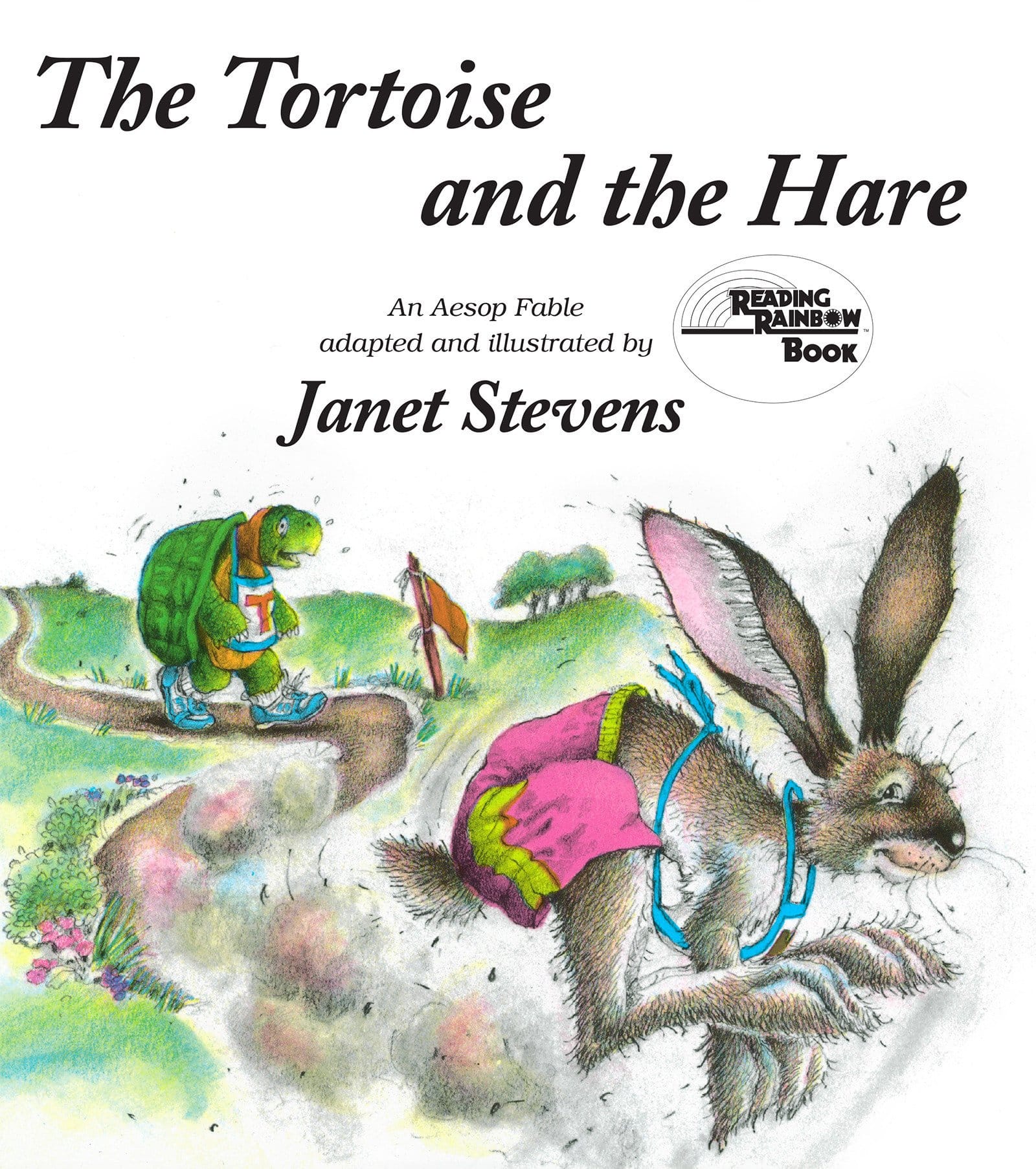
This classic fable (story) is about a very slow tortoise (turtle) and a speedy hare (rabbit). The tortoise challenges the hare to a race. The hare laughs at the idea that a tortoise could run faster than him, but the race ends with a surprising result.
Have you ever heard the English expression, “Slow and steady wins the race”? This story is the basis for that common phrase . You can read it for free , along with a number of other stories in this list!

This is another great story that teaches a lesson that’s written for kids but adults can enjoy, too . The story tells of a grasshopper who lounges around all summer while his friend the ant prepares for the winter. When winter comes, the two friends end up in very different situations!
The moral is that those who save up during the good times will get to enjoy the benefits when times are bad.

This very short story from India was originally written in Sanskrit (an ancient language). When a group of doves is caught in a hunter’s net, they must work together as a team to escape from the hunter’s clutches.
You can listen to a reading of the story as you read along on this website.
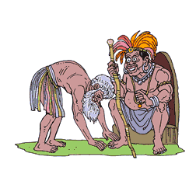
In this story, an old man sets out to ask an African king to dig some wells in his village when their water runs dry. But first, he teaches the king a lesson in humility by showing him how all people help each other. Read the story to see how the clever old man gets the king to do as he asks!

This is a modern-day story about a little girl with a big secret she can’t tell anyone about. When her teacher finds out her secret, they work together to fix the issue.
This story is a good choice for absolute beginners, because it uses only the present tense. It’s also written in very basic English with simple vocabulary and short sentences.
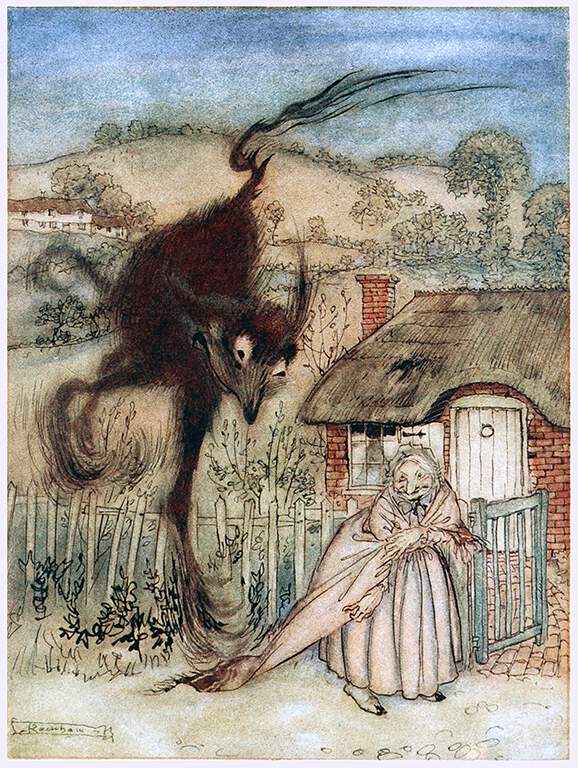
The woman in this story finds a pot of treasure on her walk home. As she carries it home, the treasure keeps changing, becoming things of lesser value.
However, the woman’s enthusiasm makes her see only the positive after each change, which would have upset anyone else. Her positive personality tries to make every negative situation seem like a gift!
This story shows how important it is to look at things from a positive point of view. Instead of being disappointed in what we don’t have, this story reminds us to view what we do have as blessings.

This modern story is about a young woman named Penny who is anxious about going to her family’s annual reunion barbecue. But despite screaming children and arguing cousins, Penny ends up happy that she came to the reunion when she starts a conversation with a handsome man.
The story is written in simple English, using only the present tense, so it’s perfect for beginners.

This classic children’s story is about two mice, one from the country and one from the city. Both mice think that the other mouse is so lucky to live in what they think is a wonderful place!
The two mice decide to visit each other in their homes. It turns out that the country mouse has a difficult time in the city, and the city mouse struggles in the country.
In the end, they realize that they believed the old English saying: “The grass is always greener on the other side of the fence.” In other words, each mouse thought the other had a better life, only to discover that they actually preferred their own life!

The story of Paul Bunyan has been around in the United States for many years. He’s the symbol of American frontier life, showing the ideal strength, work ethic and good morality that Americans work hard to imitate.
Paul Bunyan is considered a legend, so stories about him are full of unusual details, such as eating 50 eggs in one day and being so big that he caused an earthquake. It can be a pretty funny read, with characters such as a blue ox and a reversible dog.
This version of the story is also meant to be read out loud, so it’s fast-paced and entertaining. This website has an audio recording with the story, which you can play at slower or faster speeds.
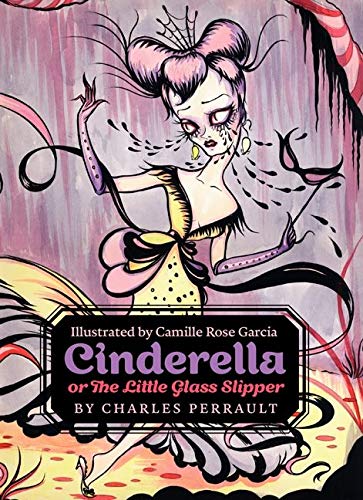
You may already know the story of Cinderella, whether you saw the Disney movie or read a children’s book of it.
However, there are actually many different versions of “Cinderella.” This one by Charles Perrault is the most well-known and is often the version told to children.
“Cinderella” is a beloved story because it describes how a kind and hard-working person was able to get a happy ending. Even though Cinderella’s stepsisters treated her awfully, Cinderella herself remained gentle and humble. It goes to show that even though you may experience hardships, it’s important to stay kind, forgiving and mindful.
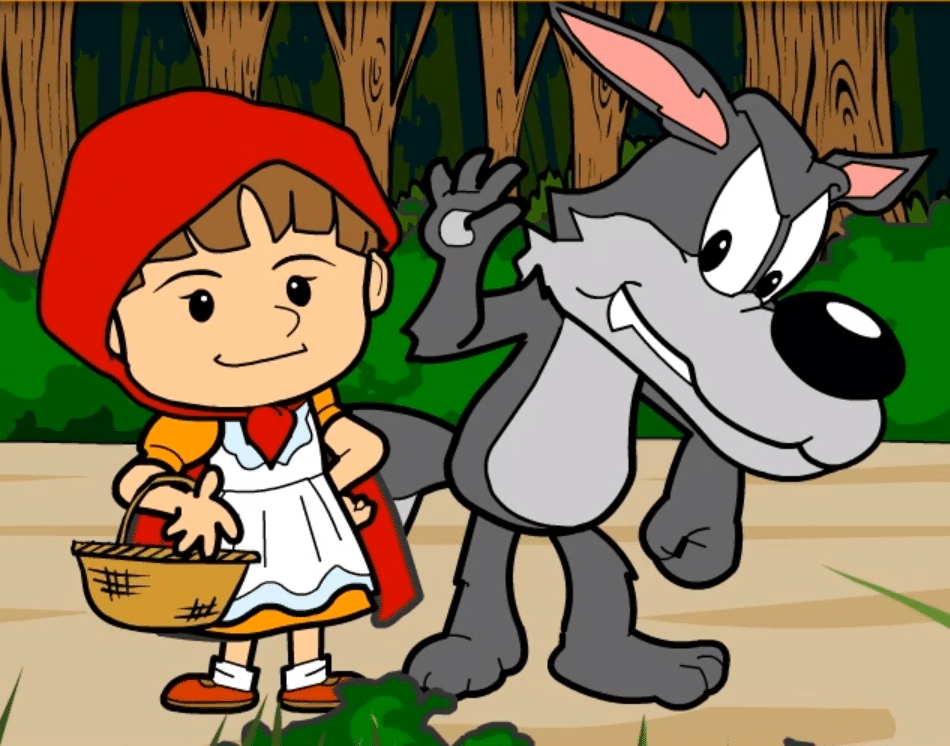
This is a story that every English-speaking child knows. It’s about a little girl who meets a wolf in the forest while going to see her sick grandmother. The wolf pretends to be her grandmother in order to trick the little girl.
This story is presented by the British Council as a video with the text clearly spoken. You can then play a game to rearrange the sentences below the video into the correct order, read the text of the story in a PDF file and answer some activity questions (then check your answers with the provided answer sheet.
This website has many other stories you can read and listen to, like “Circus Story” by Sue Clarke, which is an excellent option for learning animal vocabulary, and even adaptations of Shakespeare plays for younger readers.
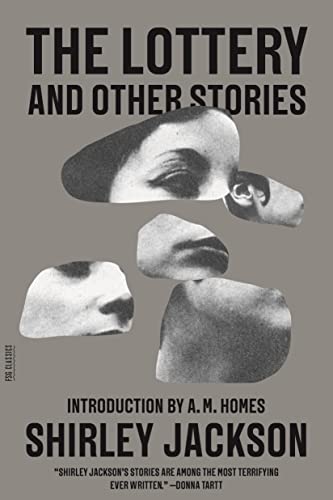
Every year, the small town in this story holds an event known as “The Lottery.” During this event, someone from the community is randomly chosen.
What are they chosen for? You’ll have to read the story to find out.
You may have heard of the term “mob mentality” and how it can allow for some pretty surprising (and terrible) things to happen. This classic story looks at society, and how much evil people are willing to overlook to keep their society stable.
This is considered to be one of the most famous short stories in American literature. It’s a great example of what is known as a dystopian society, where people live in a frightening way. To learn more, check out this TED-Ed video that tells you how to recognize a dystopia.

Since the story is old, much of the English is outdated (not used in modern English). Still, if you have a good grasp of the English language, you can use this story to give yourself a great reading challenge.
14. “The Night Train at Deoli” by Ruskin Bond
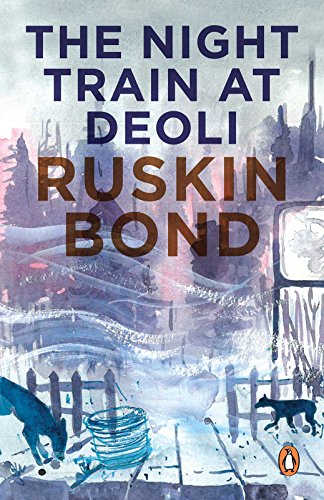
Ruskin Bond used to spend summers at his grandmother’s house in Dehradun, India. While taking the train, he always had to pass through a small station called Deoli. No one used to get down at the station and nothing happened there.
Until one day, when he sees a girl selling fruit and is unable to forget her.
Ruskin Bond is a writer who can communicate deep feelings in a simple way. This story is about our attachment to strangers and why we cherish (value or appreciate deeply) them even though we might never meet them again.
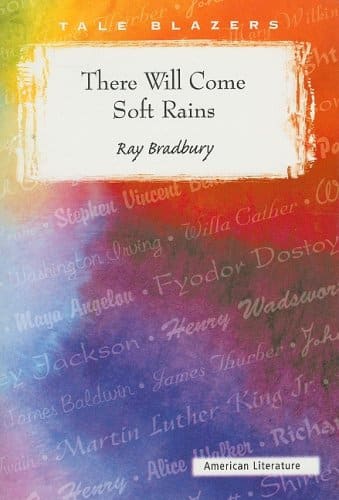
The title is taken from a poem that describes how nature will continue its work long after humanity is gone. But in this story, we see that nature plays a supporting role and the machines are the ones who have taken its place.
They continue their work without any human or natural assistance. This shows how technology has replaced nature in our lives and how it can both destroy us and carry on without humanity itself.
16. “Orientation” by Daniel Orozco
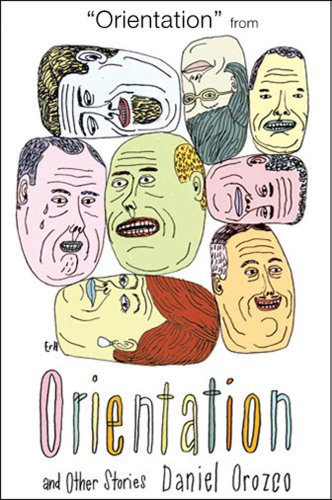
This is a humorous story in which the speaker explains the office policies to a new employee while gossiping about the staff. It’s extremely easy to read, as the sentences are short and the vocabulary is simple.
Many working English learners will relate to this story, as it explains the silly, nonsensical moments of modern office life. Modern workplaces often feel like theaters where we pretend to work rather than get actual work done. The speaker exposes this reality that few would ever admit to.
He over-explains everything from the view out the office window to the intimate details of everyone’s life—from the overweight loner to the secret serial killer. It talks about the things that go unsaid; how people at the office know about the deep secrets of our home life, but don’t discuss them.
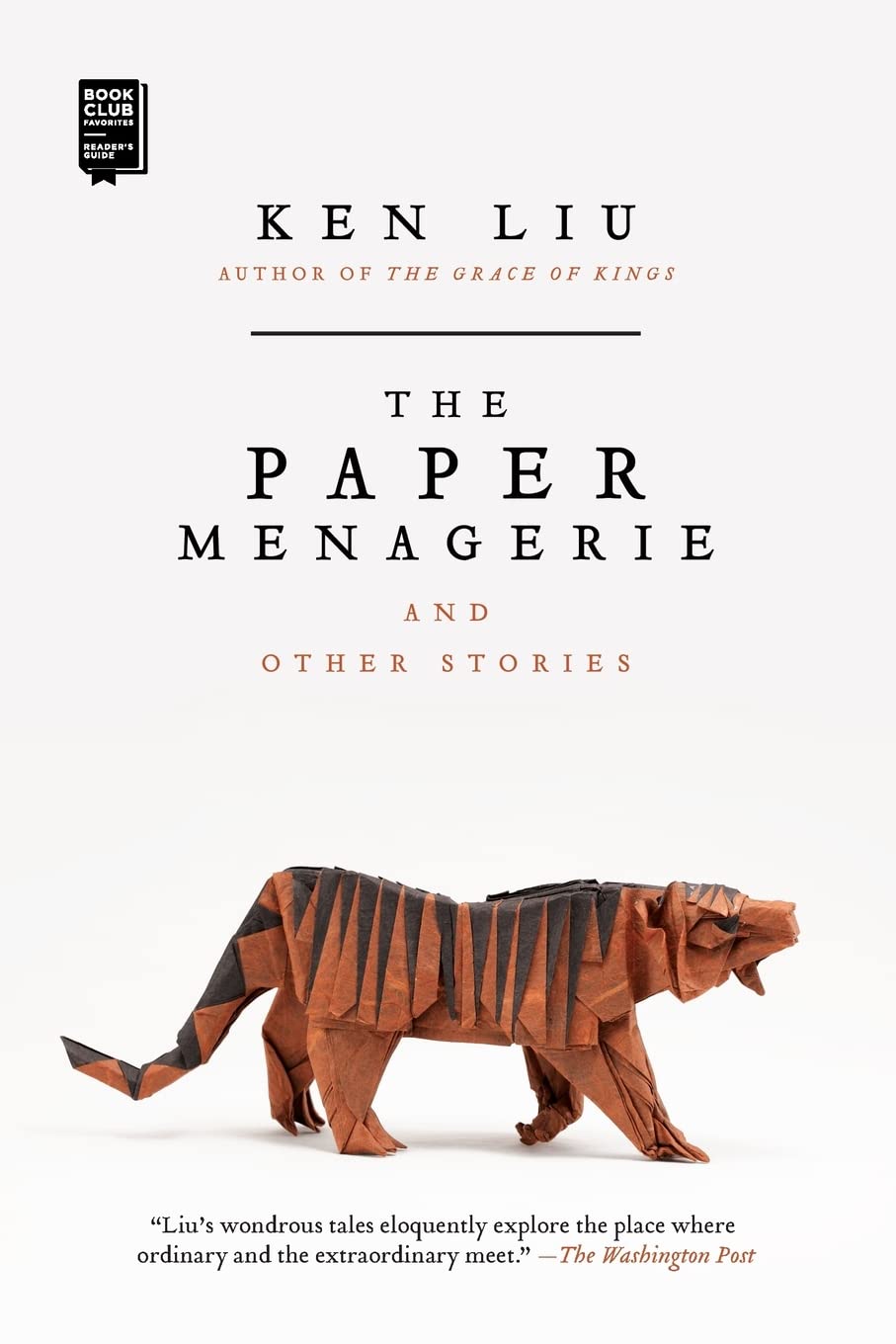
Jack’s mother can make paper animals come to life. In the beginning, Jack loves them and spends hours with his mom. But once he grows up, his mother’s inability to speak English keeps Jack from talking to her.
When his mother tries to talk to him through her creations, he kills them and collects them in a box. After a tragic loss, he finally gets to know her story through a hidden message that he should have read a long time ago.
The story is a simple narration that touches on complex issues, like leaving your home country and the conflicts that can occur within families when different cultures and languages collide.
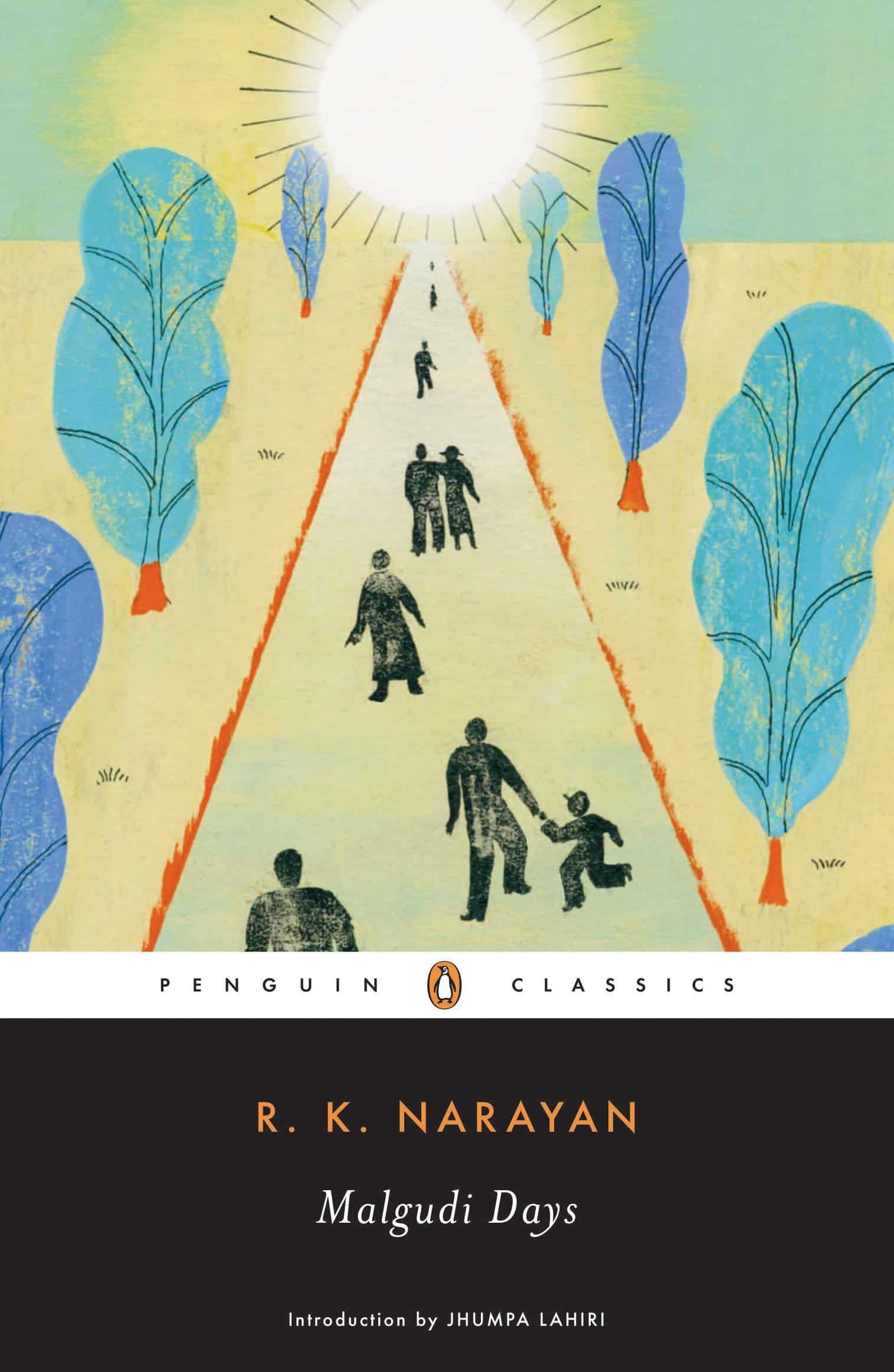
Thanappa is the village mailman, who is good friends with Ramanujam and his family. He learns about a failed marriage and helps Ramanujam’s daughter get engaged to a suitable match.
Just before the wedding, Thanappa receives a tragic letter about Ramanujam’s brother. To spare them heartache, he decides not to deliver the letter.
The story explores the idea that despite the best of intentions, our actions can cause more harm to our loved ones than we ever intended. If you like this and want to read more by R.K. Narayan, check out the other stories in the author’s “ Malgudi Days” short story collection.
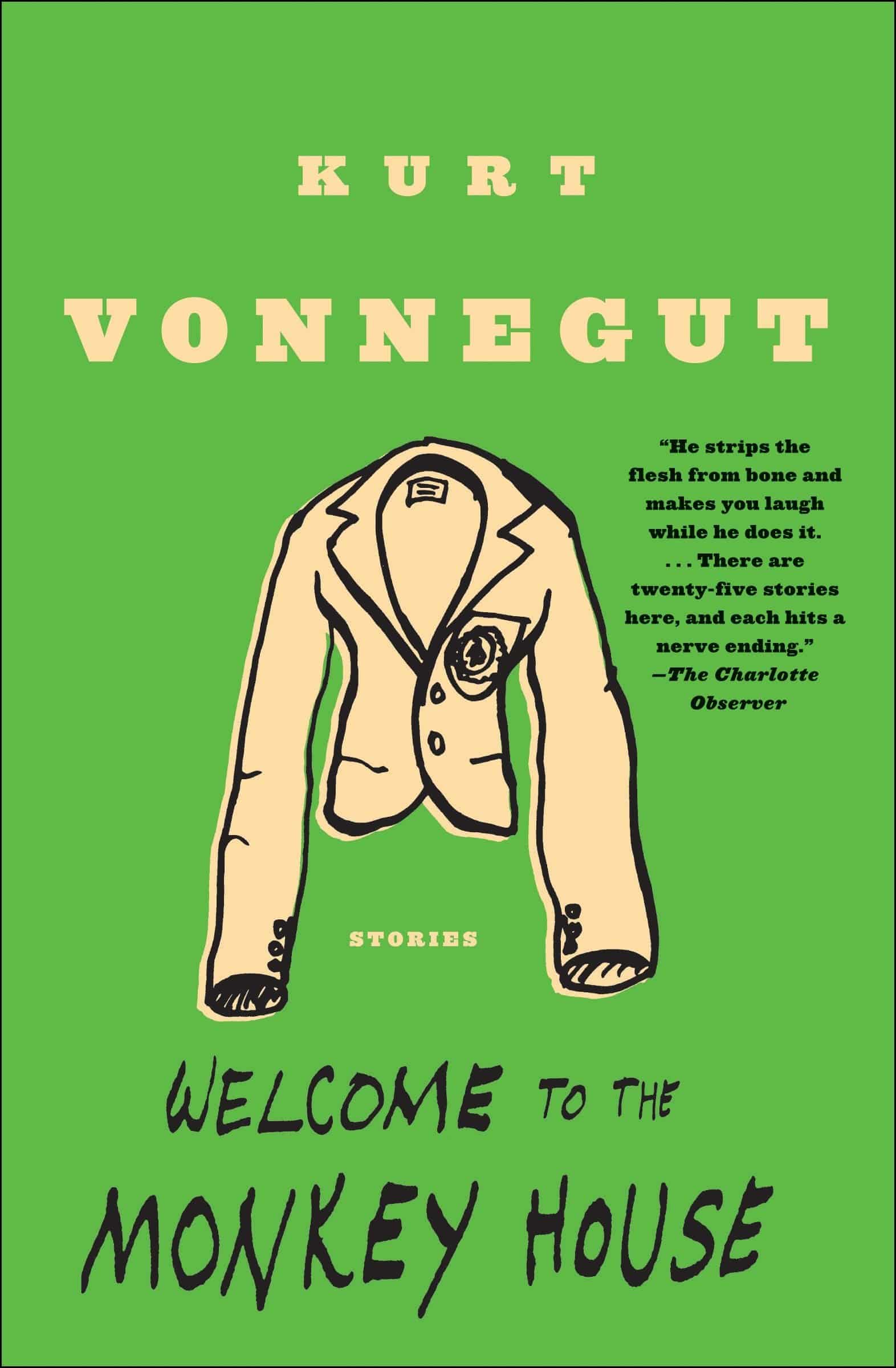
The year is 2081, and everyone has been made equal by force. Every person who is superior in any way has been handicapped (something that prevents a person’s full use of their abilities) by the government. Intelligent people are distracted by disturbing noises. Good dancers have to wear weights so that they don’t dance too well. Attractive people wear ugly masks so they don’t look better than anyone else.
However, one day there is a rebellion, and everything changes for a brief instant.
Technology is always supposed to make us better. But in this case, we see that it can be used to disable our talents. Moreover, the writer shows us how the mindless use of a single value like equality can create more suffering for everyone.
20. “The School” by Donald Barthelme
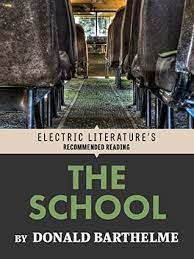
And that’s just the beginning of the series of unfortunate events at the school in this short story, narrated by a teacher. The story is absurd (ridiculous to the point of being silly), even though the topic is serious. By the end, the kids start asking difficult questions about death that the adults don’t quite know how to answer.
This story leaves a lot of things unsaid, which means you’ll need to “read between the lines,” or look closer at the text to understand what’s really happening.
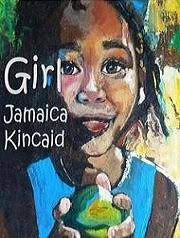
In “Girl,” a mother tells her daughter how to live her life properly. The mother instructs the girl to do all the household chores, in very specific ways, making it seem like that’s her only duty in life.
Sometimes the mother tells the girl how to attract attention, not to talk to boys and to always keep away from men. Other times, the mother hints that the girl will need to be attractive to men to live a good life.
This story doesn’t feel like a story. There’s no plot, and nothing really happens. But read closely, and you’ll see an important message about how girls are taught to live restricted lives since childhood.

“Rikki-Tikki-Tavi” is a classic tale about a Mongoose who regularly visits a family in India. The family feeds him and lets him explore their house, but they worry that he might bite their son, Teddy.
One day, when a snake is about to attack Teddy, the Mongoose kills it. This event helps the family accept the mongoose into their family.
This is a simple story about humans and animals living together as friends. It’s old, but the language is fairly easy to understand. It reminds us that animals can also experience feelings of love and, like humans, they will also protect the ones they love.
“Rikki-Tikki-Tavi” is part of Kipling’s short story collection “The Jungle Book,” which was famously made into a movie by Disney.
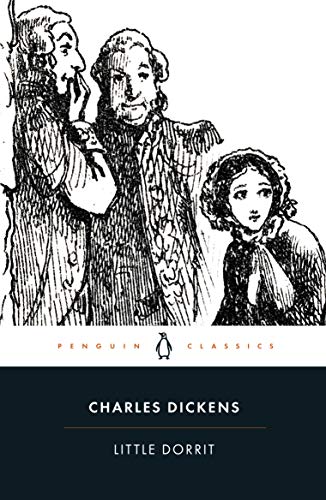
Dorrit is a child whose father has been in prison ever since she could remember. Unable to pay their debts, the whole family is forced to spend their days in a cell. Dorrit dreams of seeing the world outside their little cell.
This excerpt (short part of a larger work) introduces you to the family and their life in prison. The novel is about how they manage to get out and how Dorrit never forgets the kindness of the people who helped her.
Injustice in law is often reserved for the poor. “Little Dorrit” shows the government jailing people for not being able to return their loans, a historical practice the writer hated since his own father was punished in a similar way.
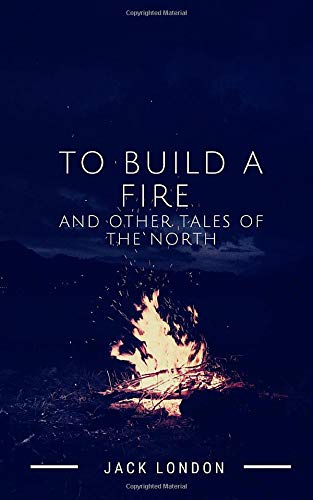
A man travels to a freezing, isolated place called Yukon with only his dog for company. Throughout his journey, he ignores the advice other people have given him and takes his life for granted.
Finally, he realizes the real power of nature and how fragile (easily broken) human life actually is.
Nature is often seen as a powerful force that should be feared and respected. The animal in this story is the one who’s cautious and sensible in this dangerous situation. By the end, readers wonder who is really intelligent—the man who could not deal with nature, or the dog who could survive?
This is a modern-day story that describes a group of children gathering around their father to watch little spiders hatch out of their eggs. But the story gets a different meaning as it nears the end. What do you think happened?
26. “Evil Robot Monkey ” by Mary Robinette Kowal
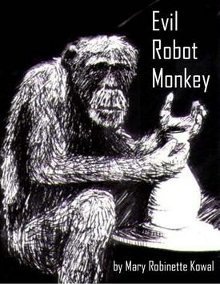
Sly is a character who doesn’t fit into society. He’s too smart for the other chimps, but humans don’t accept him. He is punished for acting out his natural emotions.
But the way he handles his rage, in the end, makes him look more mature than most human beings. Nominated for the Hugo award , many readers have connected with Sly since they can see similarities in their own lives.
“The Boarded Window” is a horror story about a man who has to deal with his wife’s death. The setting is a remote cabin in the wilderness in Cincinnati, and he feels helpless as she gets sick.
There’s an interesting twist to this story, and the ending will get you thinking (and maybe feeling a bit disturbed!).
If you enjoy older stories with a little suspense, this will be a good challenge for you. It talks about the event that made a hermit decide to live alone for decades, with a mysterious window boarded up in his cabin. It also uses a lot of psychology and symbolism, so you may want to read the story more than once to understand everything it has to say.
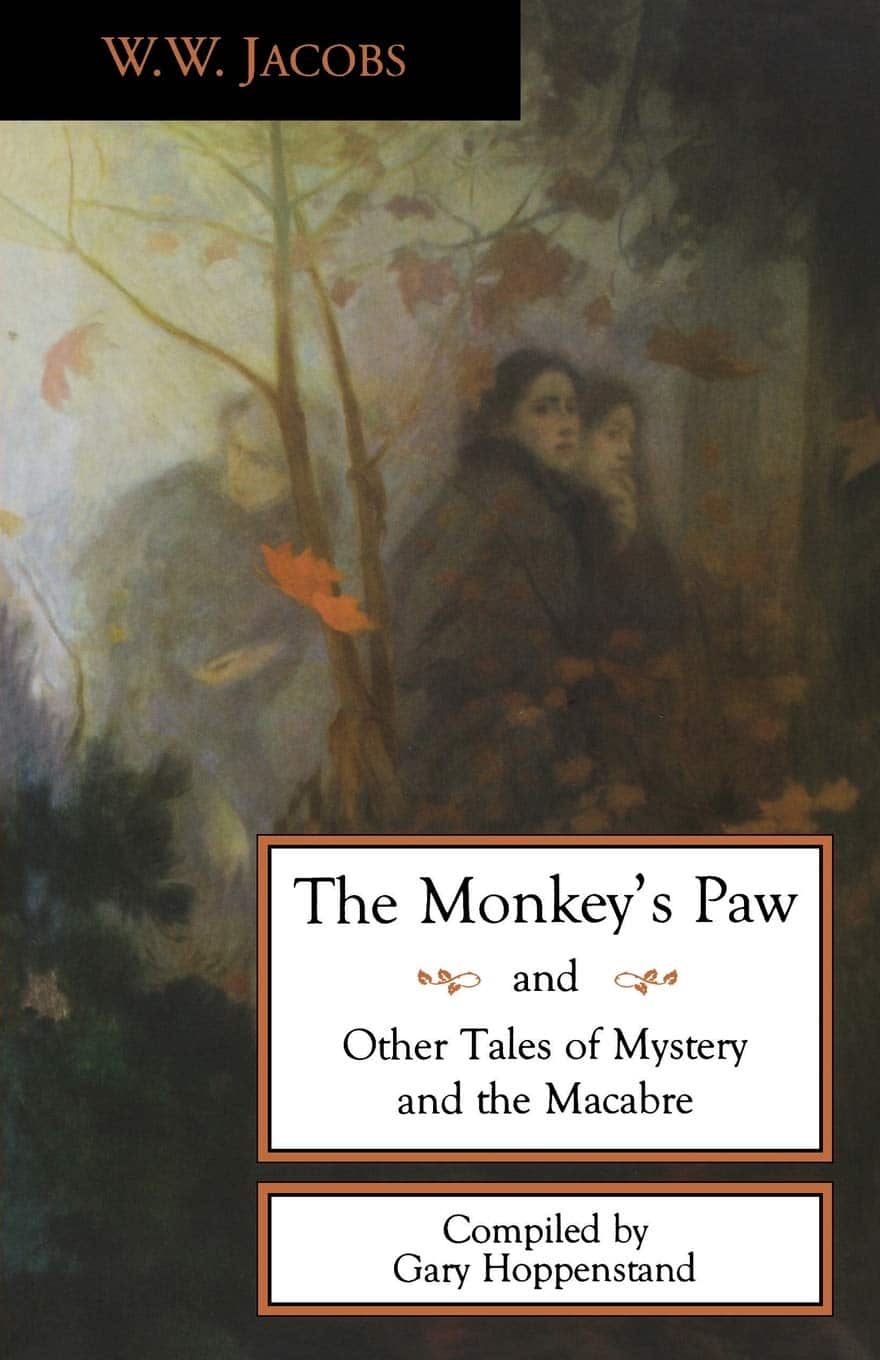
Be careful what you wish for! One man finds this out the hard way when he brings a magical monkey’s paw home from India. This paw is supposed to grant three wishes to three people. People start to wish on it, only to realize that our wishes can have severe consequences.
The characters in this story immediately regret when their wishes come true. Even though they get what they wanted, it comes at a large cost!
This short story is from the early 1900s and uses some outdated English, but it’s still easy to follow. It reminds us that there are no shortcuts in life, and to be wary if something seems too good to be true.
This story centers around Titania and Oberon, two fairy characters from Shakespeare’s famous play, “A Midsummer Night’s Dream.” The two fairies are having a rough time in their marriage when they find a human child. They decide to adopt him, hoping that he’ll help them save their relationship. However, the child develops a deadly, modern disease and the fairies have no idea what to do since they have never known illness or death.
This is a tragic tale about how they try to understand something they’ve never seen before and their deep love for a stranger who is so unlike them. The story explores the grief of parenthood and the uncertainty of knowing whether your child will ever even know you.
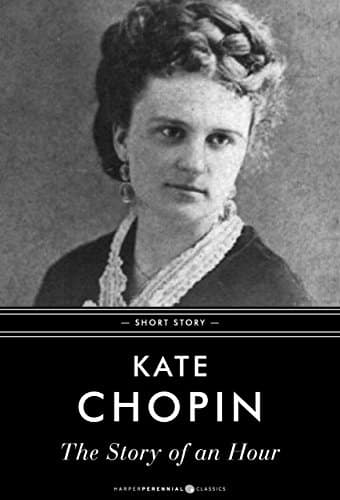
This story, written by a woman, is a sad look inside an unhappy marriage. Mrs. Mallard is a woman with heart troubles. When her husband dies, the people who come to give her this news tell it to her gently, so she doesn’t have a shock.
Mrs. Mallard busts into tears and locks herself in her room. At first, she’s upset by the news. But the more she considers it, the more excited she becomes about the idea of the freedom that would come from her husband’s death.
What happens, then, when her husband comes home after an hour, alive and well?
The story explores the conflicting range of the human emotions of grief and hope in a short span, and the impact it can have on a person’s mind and body.
The Chernobyl nuclear disaster was one of the deadliest accidents of the twentieth century. This is a story about that event seen through the eyes of a father and his sons, who were all unfortunate enough to be close to the disaster area.
The story exposes the whole system of corruption that led to a massive explosion taking innocent lives and poisoning multiple generations. The technical vocabulary and foreign words make this text a little more difficult. However, its plot is relatively easy to follow.
The story is divided into small parts that make it both easy and exciting to read. Its various events show what it was like to live in the former Soviet Union . And just like any other good story, it’s also about human relationships and how they change due to historic events.
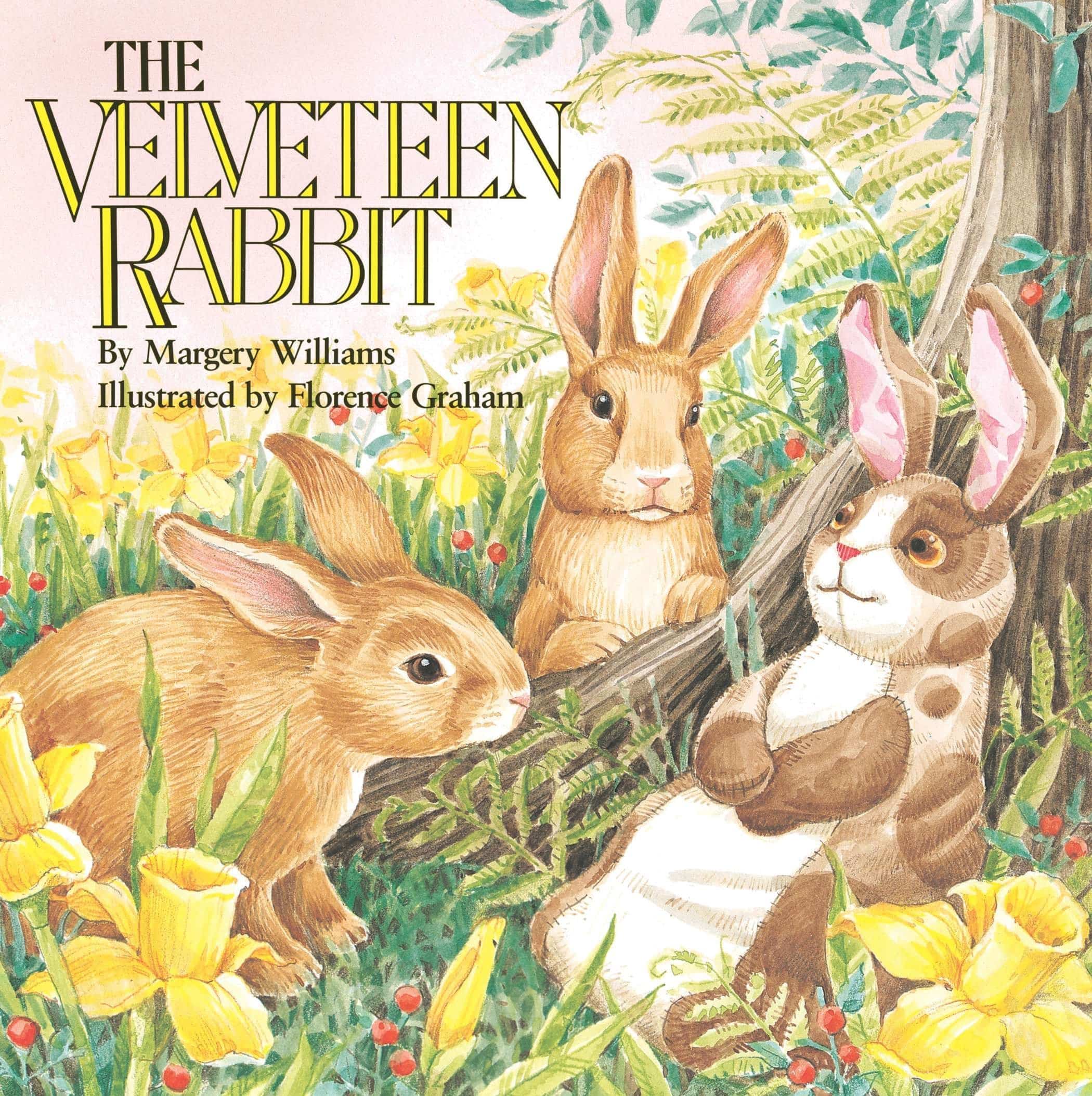
A simple, stuffed rabbit toy is given to a young boy as a Christmas present. At first, the rabbit isn’t noticed, as the boy is distracted by much fancier gifts. While being ignored, the rabbit begins to wonder what it means to be “real.”
One day, a certain event brings the rabbit into contact with the boy, and changes the toy’s life forever.
Have you ever loved a toy or doll so much, that you treated it as if it were alive? This story shows the power of love from a very unexpected viewpoint: that of a fluffy stuffed rabbit. It also highlights the importance of self-value, being true to yourself and finding strength in those who love you.
Tradition is important in this school, where the boys always go to fetch water for the class. The girls are teased for being “weaker,” and are last to get other privileges, like having the first choice of magazines. One day, a girl asks the teacher why girls aren’t allowed to get the water, as well. This one question causes a big reaction and leads to a huge change.
The girl’s courage surprises everyone, but it also inspires other girls to stand up for themselves. One act from one brave person can lead to change and inspire others. The story reflects on gender equality and how important it is to fight for fairness. Just because something is accepted as “normal,” doesn’t mean it is right!

At a Spanish train station, an American man and a young woman wait for a train that would take them to the city of Madrid. The woman sees some faraway hills and compares them to “white elephants.” This starts a conversation between the two of them, but what they discuss seems to have a deeper meaning.
This is another very well-known story that asks you to “read between the lines” to find the hidden meaning behind the text. Much of the story is a back-and-forth dialogue between two people, but you can tell a lot about them just from what they say to each other.
There’s a lot of symbolism that you can analyze in this story, along with context clues. Once you realize what the real topic of the characters’ conversation is, you can figure out the quiet, sadder meaning behind it.
Short stories are effective in helping English learners to practice all four aspects of language learning: reading, writing, listening and speaking. Here’s how you can make the most out of short stories as an English learner:
- Use illustrations to enhance your experience: Some short stories come with illustrations that you can use to guess what the story is about. You can even write your own caption or description of the picture. When you finish the story, go back to your image description. How did you do?
- Explore stories related to a theme: Do you like ghost stories? Science fiction? Romance? If you’re learning about food or cooking, find a short story with a lot of food vocabulary .
- Choose the right reading level: Make sure that you always challenge yourself! One easy way to tell if a story is just right for you is to use the “five-finger test.” Hold up your fist as you read a paragraph, and put up one finger for each word you don’t know. If you have all five fingers up before the end of the paragraph, try to find an easier text.
- Practice “active reading”: Your reading will only help you learn if you read actively . You’re reading actively when you’re paying very close attention to the story, its words and its meanings. Writing with a notebook nearby and in a place with no distractions can help you focus on active reading.
- Choose only a few words to look up: You may be tempted to stop at every unknown word, but it’s actually better to try to figure out its meaning from context clues. This means looking at everything else in the sentence or paragraph to try and guess the meaning of the word. Only look up words that you can’t figure out even with context clues.
- Summarize the story: When you’ve finished reading the story, retell it in your own words or write a summary of it. This will help you to practice any new words you learned, and make sure that you understood the story well. If you’re struggling, read the story again and take notes as you read.
- Take breaks: Just because these stories are short, doesn’t mean you need to read them in one sitting! If you find it hard to focus or you’re struggling to understand the story, take a break. It’s okay to read it one paragraph at a time.
I hope you have fun with these English short stories while improving your English language skills.
Happy reading!
If you like learning English through movies and online media, you should also check out FluentU. FluentU lets you learn English from popular talk shows, catchy music videos and funny commercials , as you can see here:

If you want to watch it, the FluentU app has probably got it.
The FluentU app and website makes it really easy to watch English videos. There are captions that are interactive. That means you can tap on any word to see an image, definition, and useful examples.

FluentU lets you learn engaging content with world famous celebrities.
For example, when you tap on the word "searching," you see this:

FluentU lets you tap to look up any word.
Learn all the vocabulary in any video with quizzes. Swipe left or right to see more examples for the word you’re learning.

FluentU helps you learn fast with useful questions and multiple examples. Learn more.
The best part? FluentU remembers the vocabulary that you’re learning. It gives you extra practice with difficult words—and reminds you when it’s time to review what you’ve learned. You have a truly personalized experience.
Start using the FluentU website on your computer or tablet or, better yet, download the FluentU app from the iTunes or Google Play store. Click here to take advantage of our current sale! (Expires at the end of this month.)
Enter your e-mail address to get your free PDF!
We hate SPAM and promise to keep your email address safe

- Study Guides
- Homework Questions
Essay María del Pilar Gonzalez

COMMENTS
Short Essay on Co-Education (250+ Words) Co-education is a system of education in which boys and girls study together in a common school or college. Co-education was not prevalent in ancient times. It is a groundbreaking thought. Co-education is exceptionally practical. The number of schools required is less.
Short Essays for Students. This page contains short essays and other non-fiction writing for students or anyone who wants to read and think about an opinion piece. It will only take a few minutes or less to read any of these texts. They are all under 2,000 words. Each non-fiction selection has a short summary or teaser and some possible themes ...
Check your assignment for the word count and stick to it. Make sure your essay flows logically from one idea to the next by presenting a clear thesis, using strong topic sentences, and providing a concise conclusion. Sometimes an assignment or test calls for a short essay. Learn how to write a short essay in 5 steps, with examples of effective ...
This essay begins by discussing the situation of blind people in nineteenth-century Europe. It then describes the invention of Braille and the gradual process of its acceptance within blind education. Subsequently, it explores the wide-ranging effects of this invention on blind people's social and cultural lives.
Composing the Essay. Download Article. 1. Create an outline for the short essay. Before you begin writing the essay, use an outline to plan out what you want to say in each of your paragraphs. Number your paragraphs 1-3 and jot down a phrase or sentence that sums up the major point you want to make in that paragraph.
Come up with a thesis. Create an essay outline. Write the introduction. Write the main body, organized into paragraphs. Write the conclusion. Evaluate the overall organization. Revise the content of each paragraph. Proofread your essay or use a Grammar Checker for language errors. Use a plagiarism checker.
In this post, we will explore the best essay writing tips and cover different essay types, the essay structure, an essay outline and much more to help you succeed on an upcoming English essay. These 10 tips are perfect for school, college or university essays, as well as English exams like IELTS, PTE and TOEFL.
The basic structure of an essay always consists of an introduction, a body, and a conclusion. But for many students, the most difficult part of structuring an essay is deciding how to organize information within the body. This article provides useful templates and tips to help you outline your essay, make decisions about your structure, and ...
1. Set aside time to write. You cannot write a quality essay in 10 minutes. It's best to give yourself ample time to write and revise the essay. Try to factor in some time for breaks between drafts as well. If you're approaching a deadline, however, you may need to make the best use of the time you have. 2.
1. Create a Word Bank. This is an interesting approach to writing your essay. First, choose a topic and write a thesis. A thesis is the main argument of your essay. For instance, if your topic is reading, your thesis might be "Reading makes you smarter.".
Conclusion Paragraph: Restate your thesis statement. Summarize your main points and arguments. Leave the reader with something to think about. Remember, this is just a basic structure you can refer to. As you write your own essay, you may find that your ideas change or that the direction of the essay has shifted.
3. Expository Essays: Writer provides a balanced study of a topic in this type of essay. To make this possible, the writer should require real and extensive knowledge about the subject. The main thing that you must know while writing your essay in an expository type is no space for the writer's feelings or emotions.
Writing practice is a method of becoming a better writer that usually involves reading lessons about the writing process, using writing prompts, doing creative writing exercises, or finishing writing pieces, like essays, short stories, novels, or books. The best writing practice is deliberate, timed, and involves feedback.
An essay is a piece of non-fiction writing with a clear structure: an introduction, paragraphs with evidence and a conclusion.Writing an essay is an important skill in English and allows you to ...
An essay is a focused piece of writing designed to inform or persuade. There are many different types of essay, but they are often defined in four categories: argumentative, expository, narrative, and descriptive essays. Argumentative and expository essays are focused on conveying information and making clear points, while narrative and ...
Prostock-studio | Canva. About This List. This list has over 150 questions divided into 15 topic areas to get you started on your English essay. Each topic is listed as a question, which you can use as your essay title. Next, you need to answer that question (which will be your thesis) and then give reasons (which will be your topic sentences).
Find 500+ Essay writing topics for students, college students, kids and students from grade 6, 7, 8. We have the largest collection of essay topics and ideas. Find 500+ Essay writing topics for students, college students, kids and students from grade 6, 7, 8. ... Essay topics in English can be difficult to come up with. While writing essays ...
365 Essays for English Learners. 1 America: Land of Opportunity. 2 The Fourth of July. 3 The U.S. Federal Government. 4 Christmas: A Holiday of Traditions. 5 New Year's Day: A Holiday of New Beginnings. 6 Martin Luther King Jr Day: To Remember a Civil Rights Leader. 7 Valentine's Day: A Holiday of Love and Friendship.
The best short articles, nonfiction and essays from around the net - interesting articles and essays on every subject, all free to read online Life & Death. ... The End of the English Major by Nathan Heller. 20 more great articles about education. Sport. The String Theory by David Foster Wallace
31. "The Zero Meter Diving Team" by Jim Shepherd. 32. "The Velveteen Rabbit" by Margery Williams. 33. "The Friday Everything Changed" by Anne Hart. 34. "Hills Like White Elephants" by Ernest Hemingway. How to Use Short Stories to Improve Your English.
S24 ENG 102 Week 11-12 AP Research Activity (1) QUIZ MLA Format - Omji. THE CHILDREN POEM NOTES. INTEGRATION - YES. English document from University of Latvia - Riga, 3 pages, María del Pilar González Essay. Please write a small essay about the following questions. It is an individual work. Please, send it to me till the April, 9. 1.